32 fun facts about British Shorthair cats
These fun facts about British Shorthair cats will have you eager to adopt one – if you haven't already!
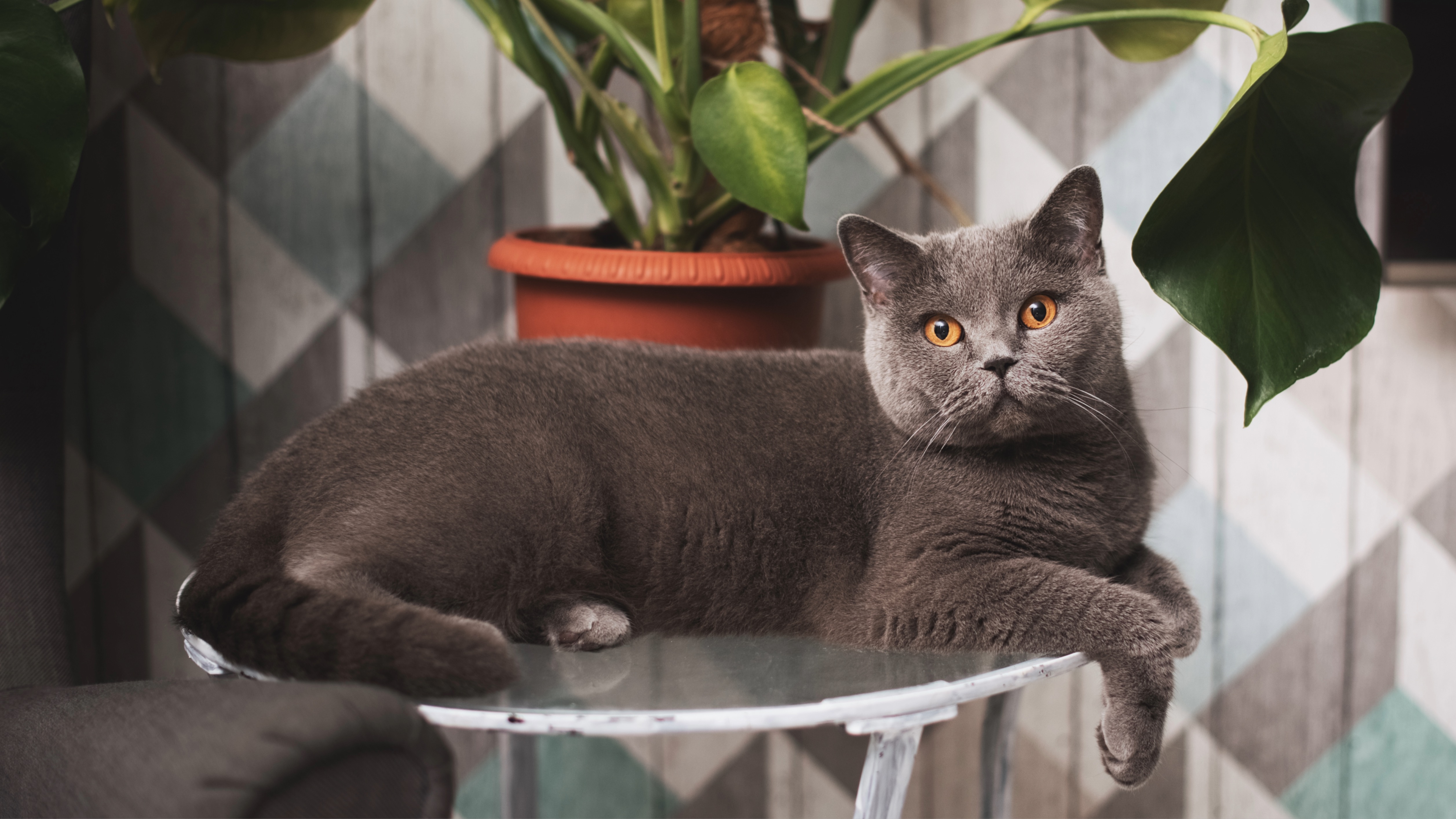
When it comes to fun facts about British Shorthairs, we had a hard time narrowing down this list! A chunky yet striking feline with teddy bear good looks and a calm and easygoing nature, this breed adores people while at the same time possessing a wonderful independent streak.
A kitty that will fit right into your home, the British Shorthair is highly adaptable and will feel comfortable in almost any living situation and environment. They enjoy the company of children, adults and other pets, and while they'll delight in spending time with you, they'll also be quite content to play with the best cat toys on their own.
There is lots to be said about this very likeable breed so let’s get into these 32 fun facts about British Shorthair cats so that you can figure out if they're the right fit for you and your family.
Facts about British Shorthair cats
1. They're big cats
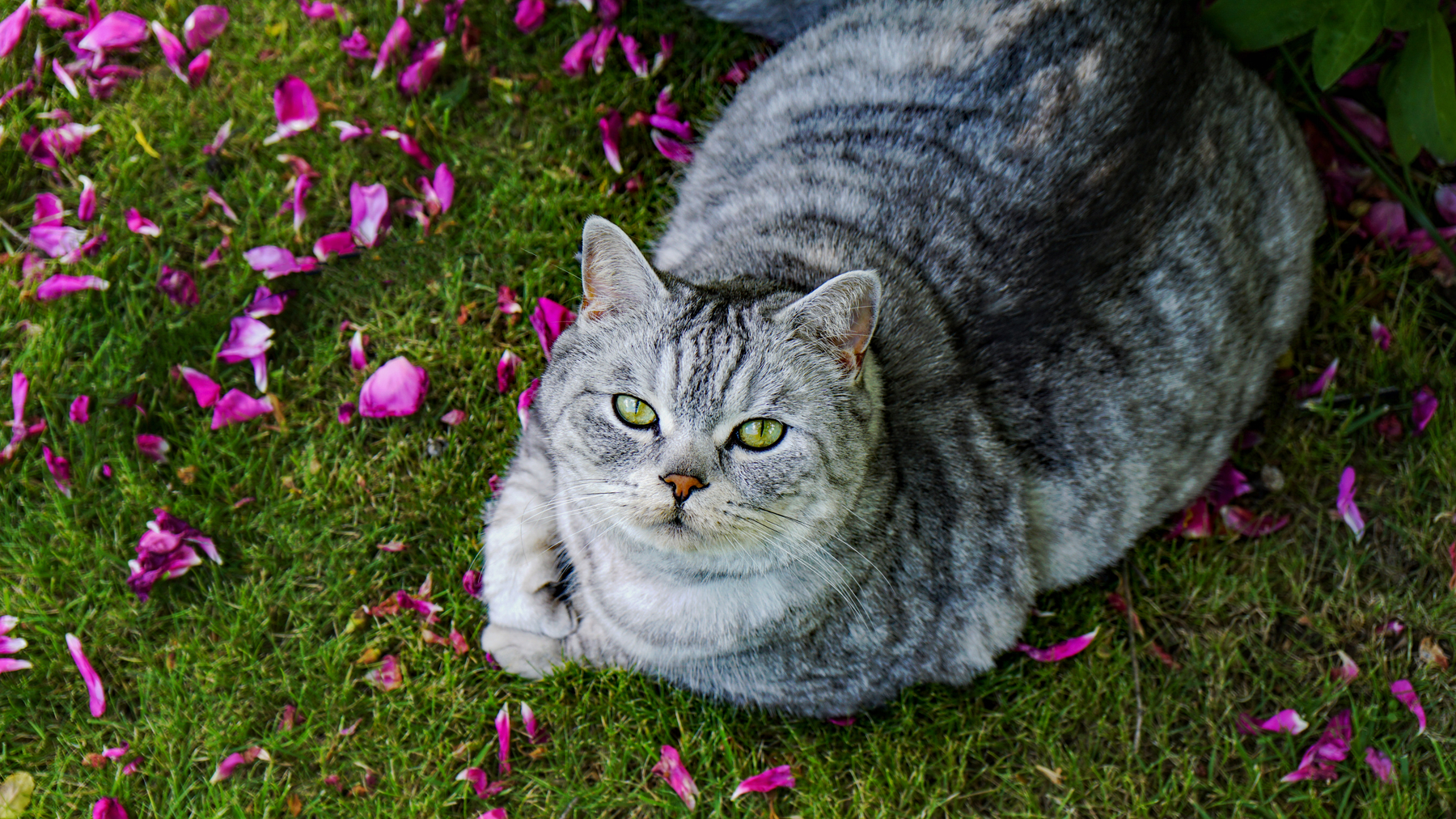
The British Shorthair cat is a heavy-muscle and heavy-boned breed. While they aren’t as large as the ragdoll or Maine Coon breed, they aren’t the kind of pet cat you’ll easily scoop up when you fancy a cuddle and they’ll need adequate amounts of the best kitten food from the get-go to ensure they can fully develop into their rounded and chunkier build.
2. They are one of the oldest cat breeds
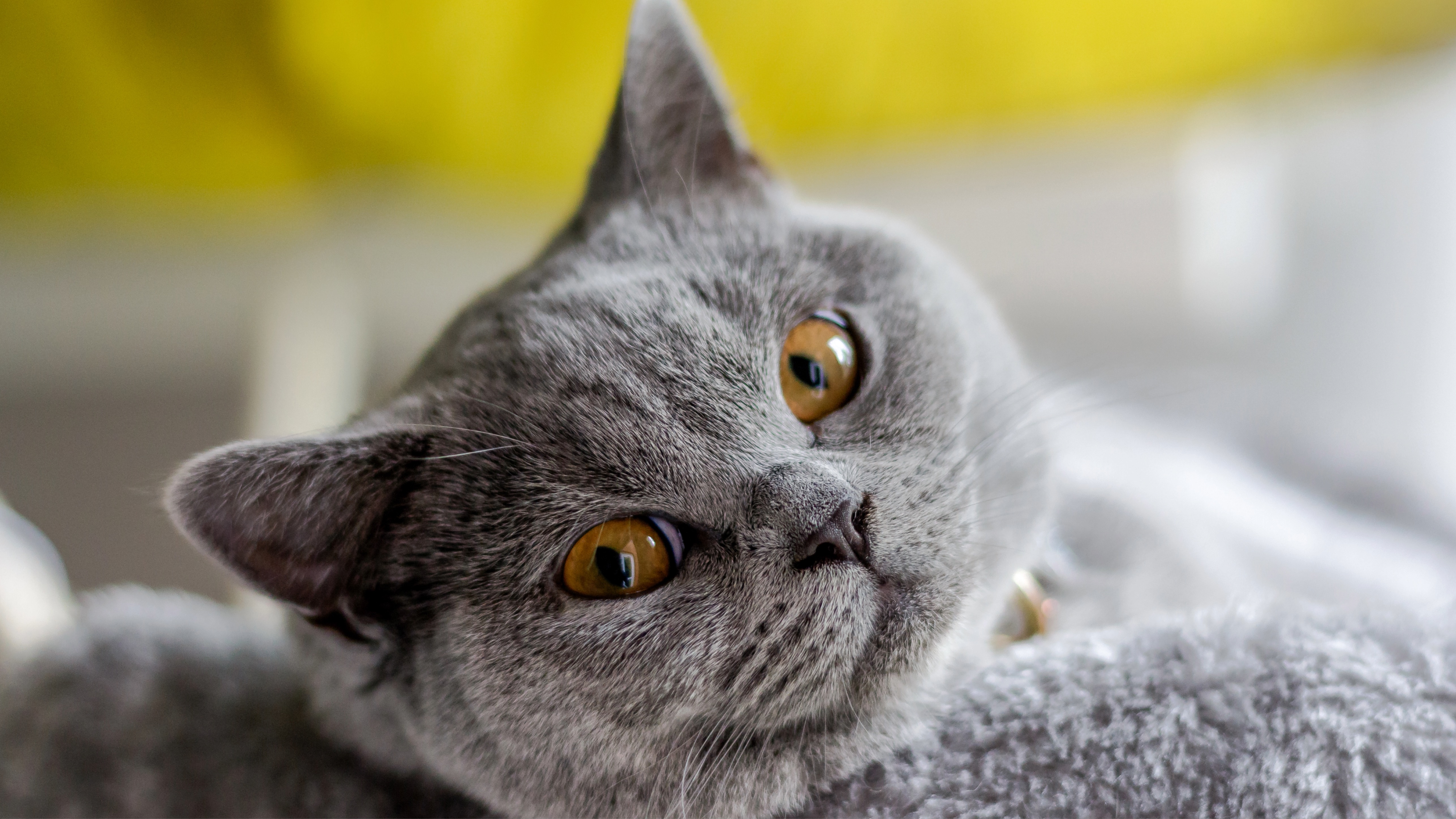
The British Shorthair is believed to date back as far as the first century AD when the Romans had them imported to use them for getting rid of mice, insects and snakes in their camps. If this is true, it would make the British Shorthair cat one of the oldest identifiable cat breeds in the world.
3. They're slow to mature
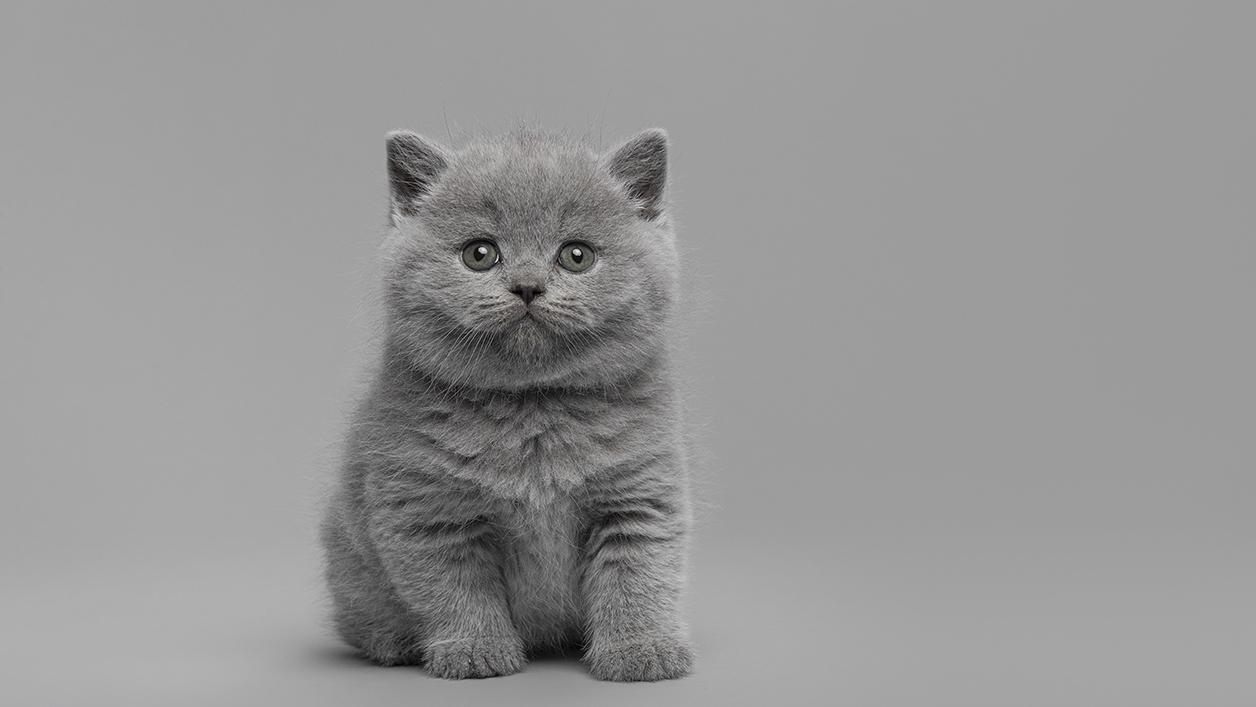
British shorthairs are slow to mature and this applies to both their physical and mental attributes. You can expect to see them reach their full size and weight between the ages of three to five years old and their kitten-like traits, such as being high energy, often dwell into adulthood. If you're looking for ways to bond with your cat, this breed will certainly appreciate plenty of playtime. However, don’t worry about not being able to handle a British shorthair’s energy as they mellow out a lot after they’ve fully matured and are very easy to spend time around.
4. They used to be blue
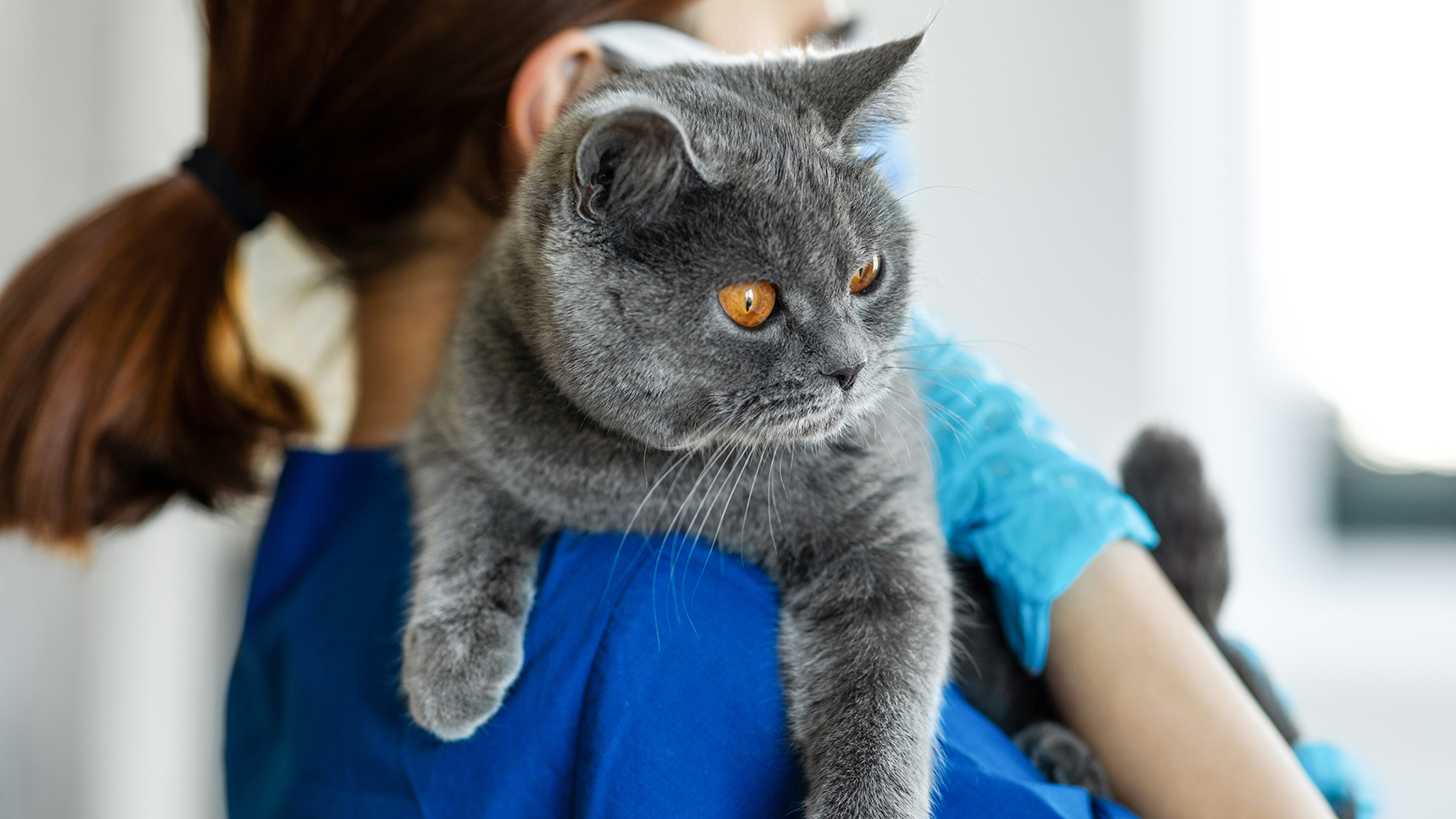
The British Shorthair was formerly referred to as the British blue when they were selectively bred to be that color (a blue-gray shade of fur) in the 19th century. They now come in just about any color and coat pattern that you could possibly wish for.
Get the best advice, tips and top tech for your beloved Pets
5. They make great family pets
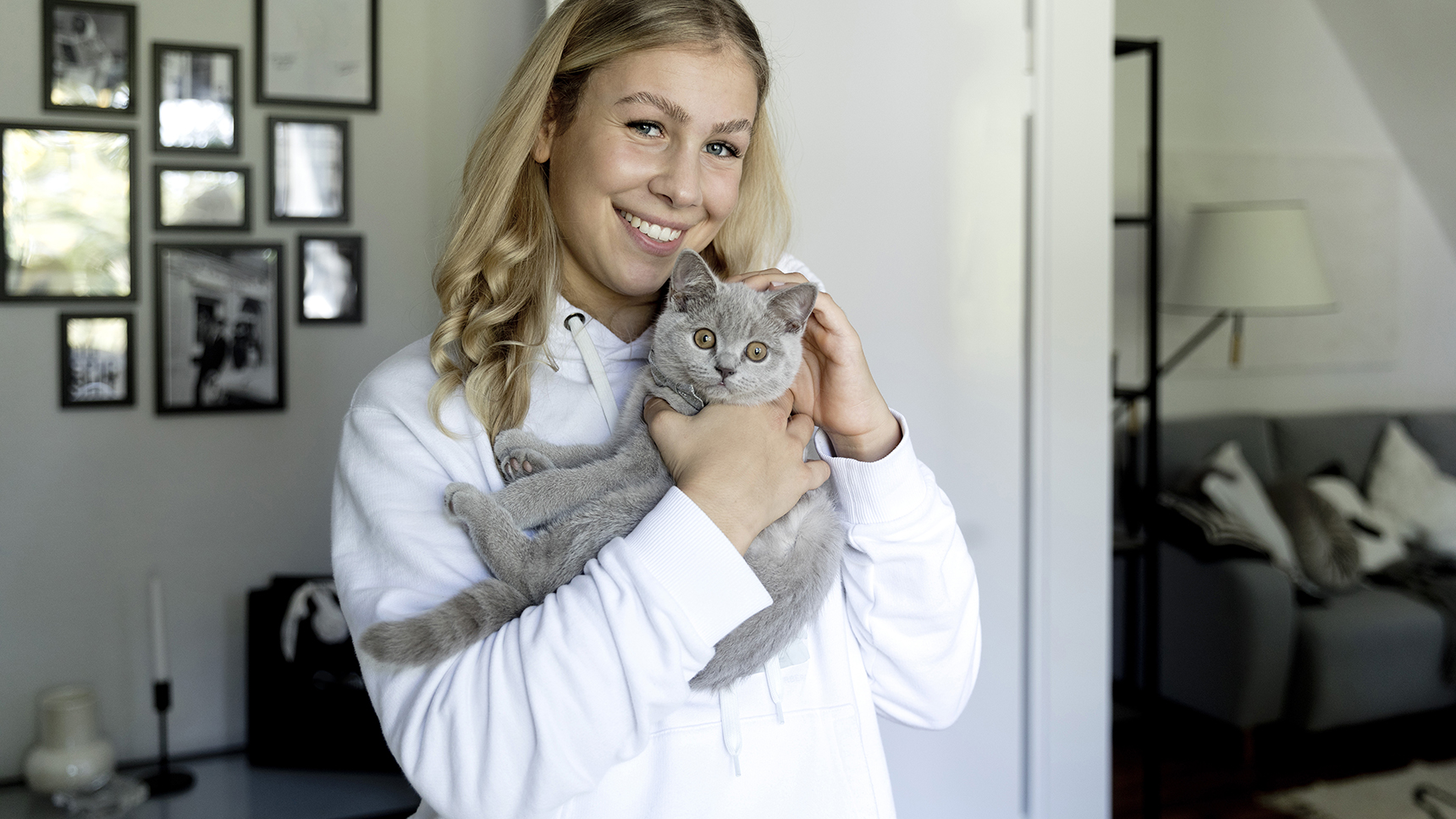
One of the most popular cat breeds for feline fans, when it comes to picking a cat that will fit right into your family home, you really can’t go wrong with the British Shorthair.
There is a reason why they are such a popular household breed: British Shorthair cats are known for having kind, loving natures, being slow-tempered, and showing loyalty to their owners.
If you have kids in your home, you’ll certainly want a cat like the British Shorthair who is laidback enough to handle the noise and chaos at times but also one that’s gentle and won’t retaliate aggressively if a small kid is driving them up the walls…quite literally.
6. They require minimal grooming
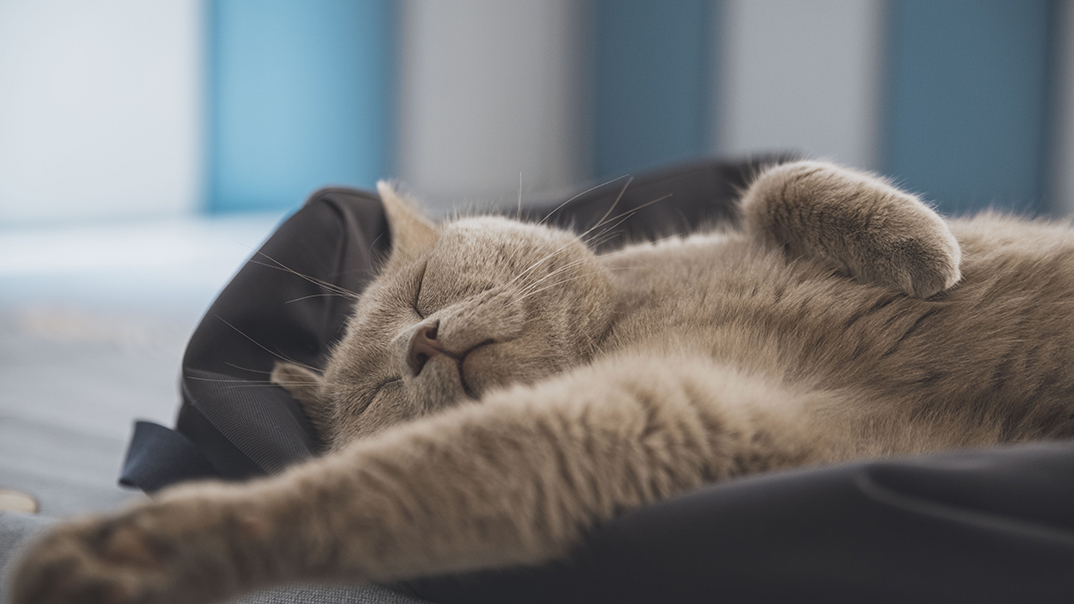
In case the name didn’t suggest this for you, British Shorthair cats have, well… short hair, therefore, their coat only needs minimal grooming (around once a week). The only time these cats’ coats may require some more TLC is over seasonal shedding periods which will require you to remove any loose hair unless you don’t mind it coating your floors and furniture.
7. Overall, they have good health
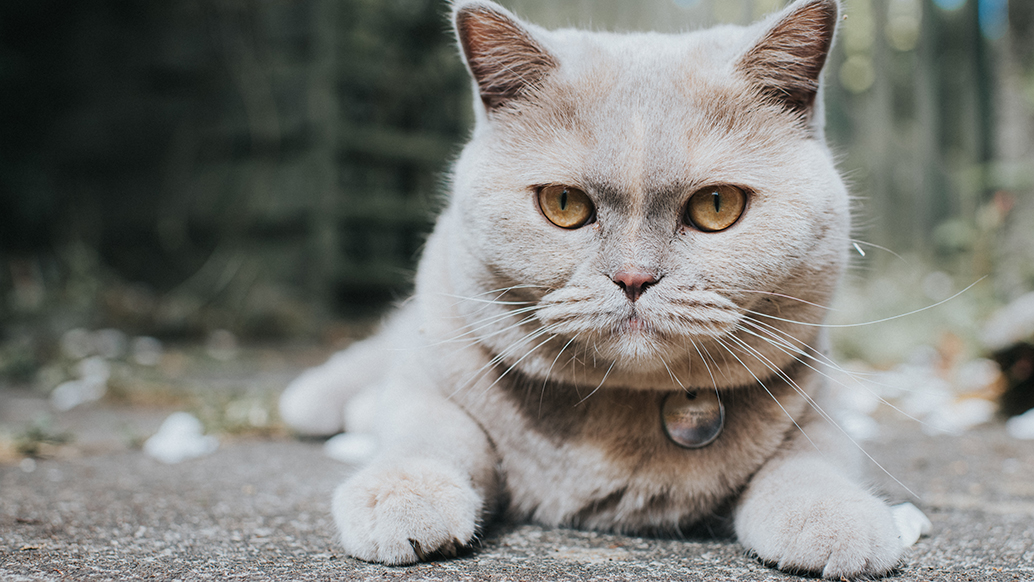
As with all cat breeds, certain kinds will be more susceptible to health issues. Fortunately for British Shorthair, they don’t face many breed-related health risks. If looked after well by their owners, these cats are known for typically living long and healthy lives - this could span around 14-20 years, which is a pretty long time!
The main risk with this breed are health issues like hyperthyroidism, this is especially true for older British Shorthairs who may develop an over-productive thyroid hormone, essentially, causing havoc with their metabolism.
They also have a genetic makeup that puts them at greater risk of heart disease and it’s also true that shorthair cats are more susceptible to developing cataracts which can lead to blindness in older cats. These are all worst-case health risks and all part and parcel of raising a pet, but generally speaking, you shouldn't find yourself taking your British Shorthair to the vet very often.
8. They’re prone to putting on weight
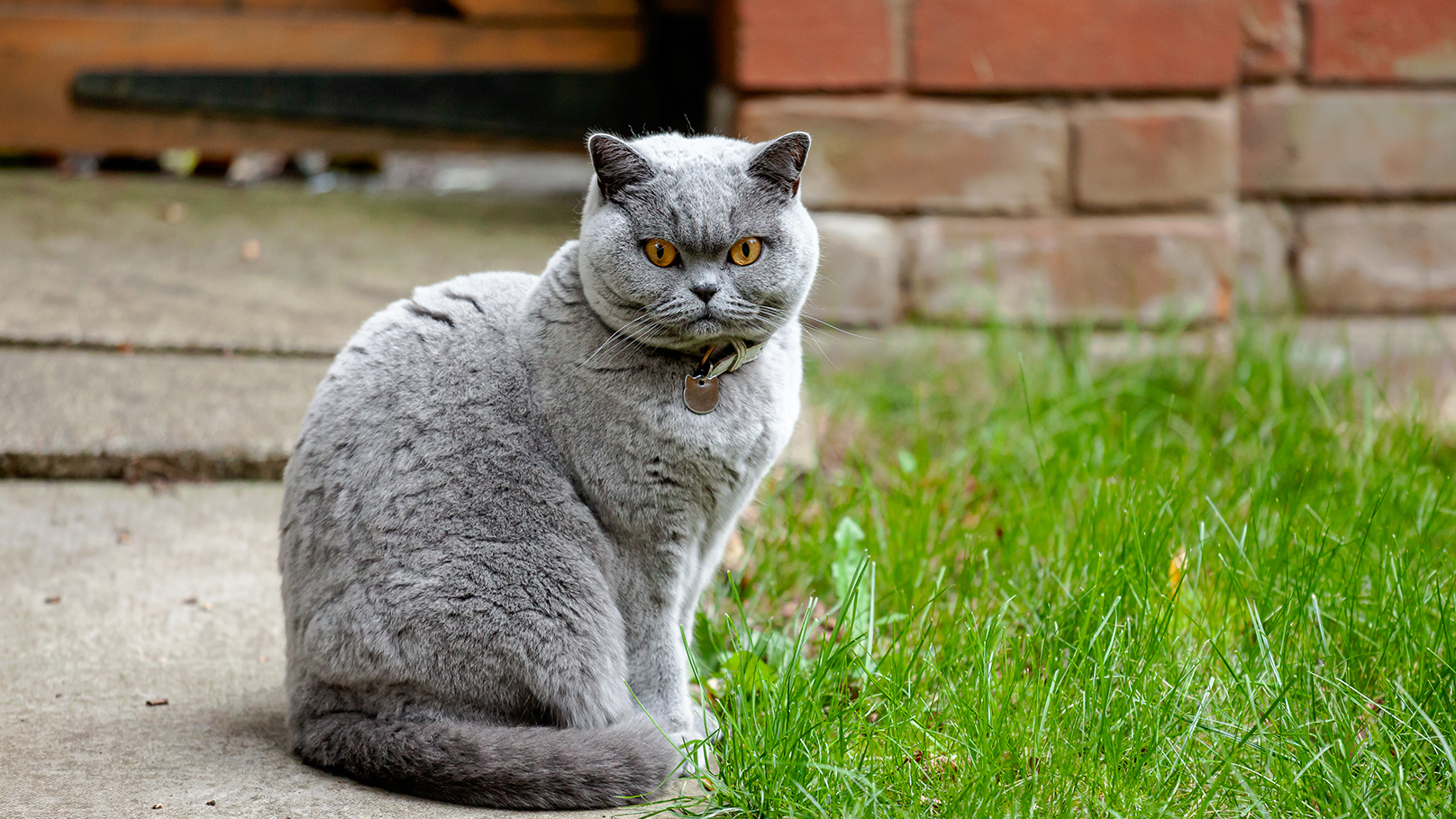
Whether you feed them a diet of the best dry cat food or the best wet cat food, it's worth being aware that the British Shorthair can get a little tubby if they overeat and don't get enough exercise.
Due to their larger build, they do require more calories to maintain a healthy weight — however, owners need to be cautious about overfeeding. A balanced diet and scheduling regular vet check-ups can help keep your pet healthy and avoid obesity.
9. They have eye colors that suit their coats
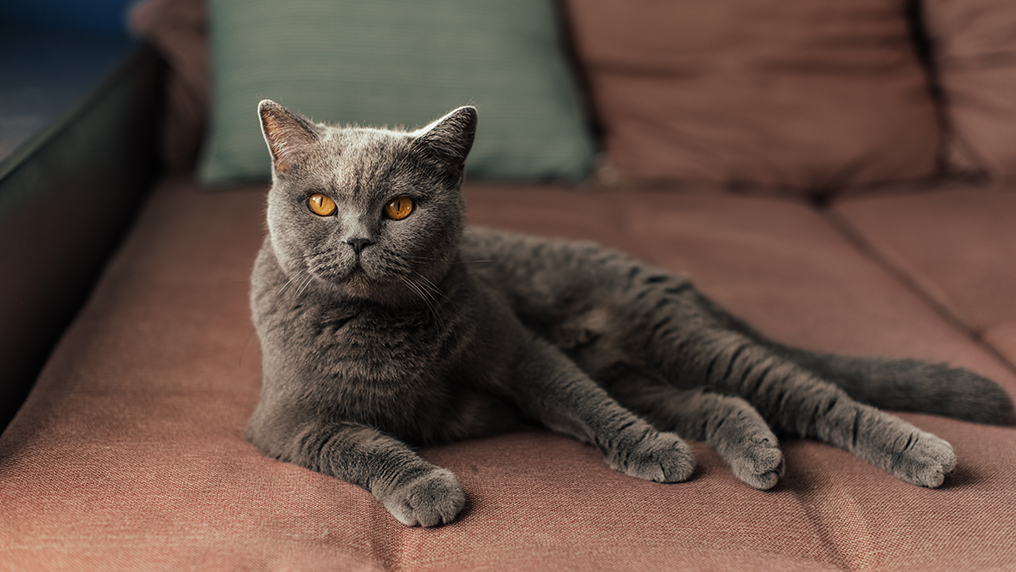
A blue coat is most common among British Shorthairs, and cats of this type tend to have striking orange eyes that lean towards sparkling gold in appearance. However, British Shorthairs can have green, copper, amber or even blue eyes, depending on the color of their coat.
10. They may have an Alice in Wonderland connection
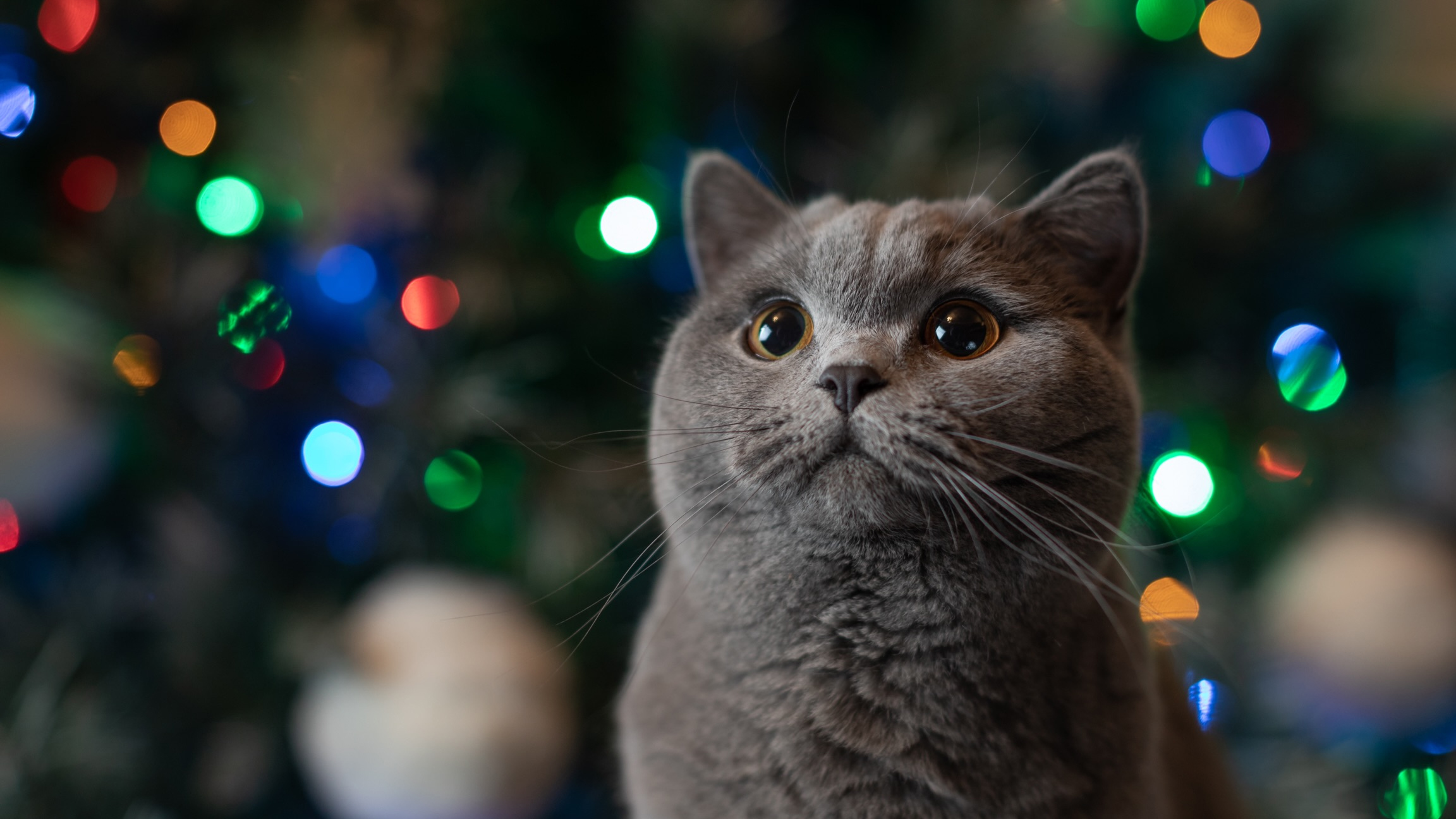
Over the years, there has been much speculation that the British Shorthair inspired the grinning Cheshire Cat in Lewis Carroll’s Alice in Wonderland, with one rumor suggesting that the author saw an illustration of the breed on a Cheshire cheese label.
11. The breed once came close to extinction
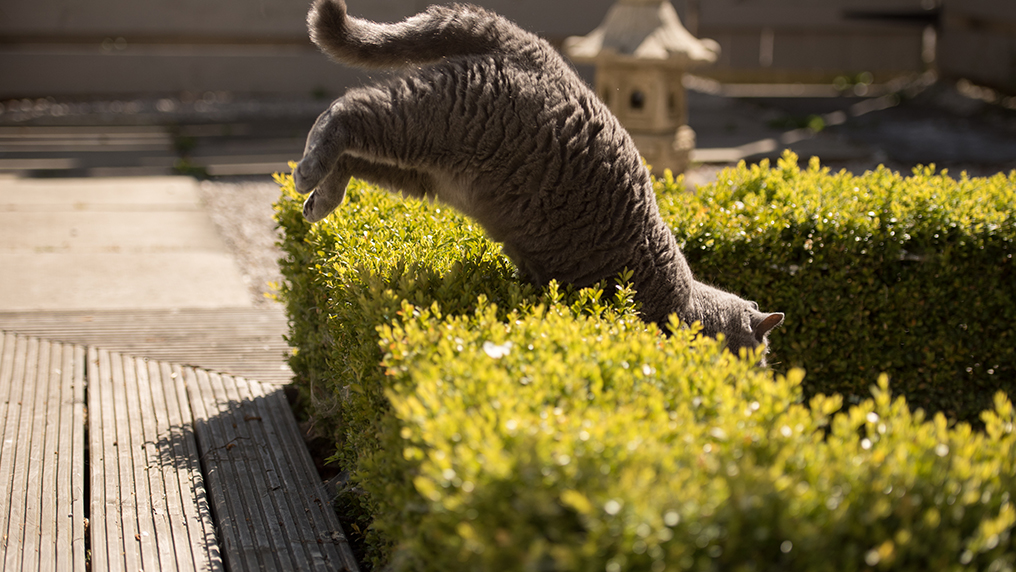
In the early 20th century, the British Shorthair fell out of fashion as pet owners had their heads turned by more exotic breed imports, such as Persians. By the end of World War II, British Shorthair numbers had reached a critical low, leading concerned breeders to step in and take action. It took until the 1970s for numbers to recover fully, and the British Shorthair is once again one of the most popular breeds in the UK.
12. A British shorthair set a purring record
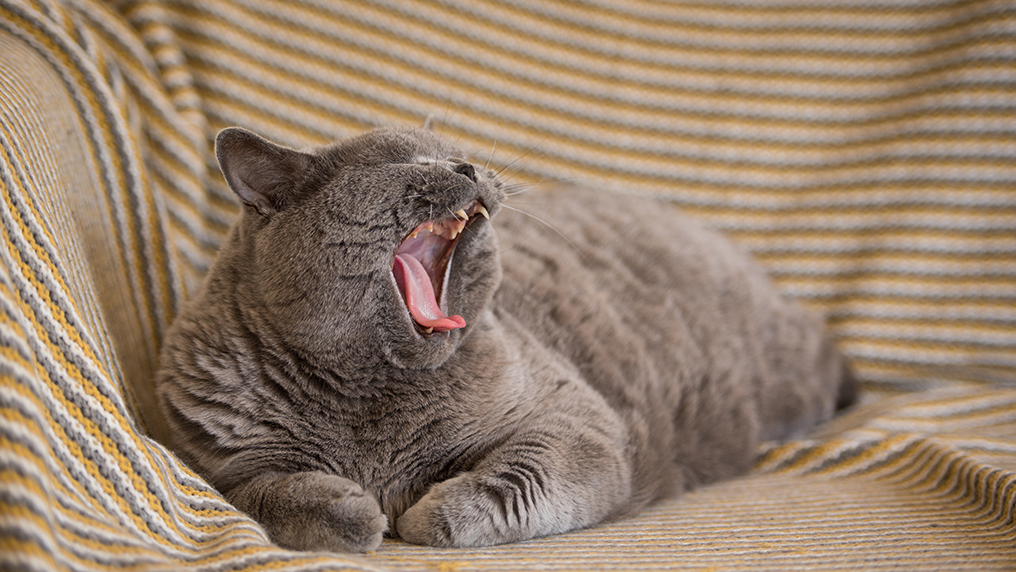
In 2011, Smokey, a British Shorthair from Northampton, set a Guinness World Record for the loudest purr. Her happy rumble clocked in at 67.7 decibels, that’s equivalent to the noise made by a household vacuum cleaner. Her owners claimed she’d even hit 90 decibels in the past – the same volume as a lawnmower!
13. A Royal Mail stamp of approval
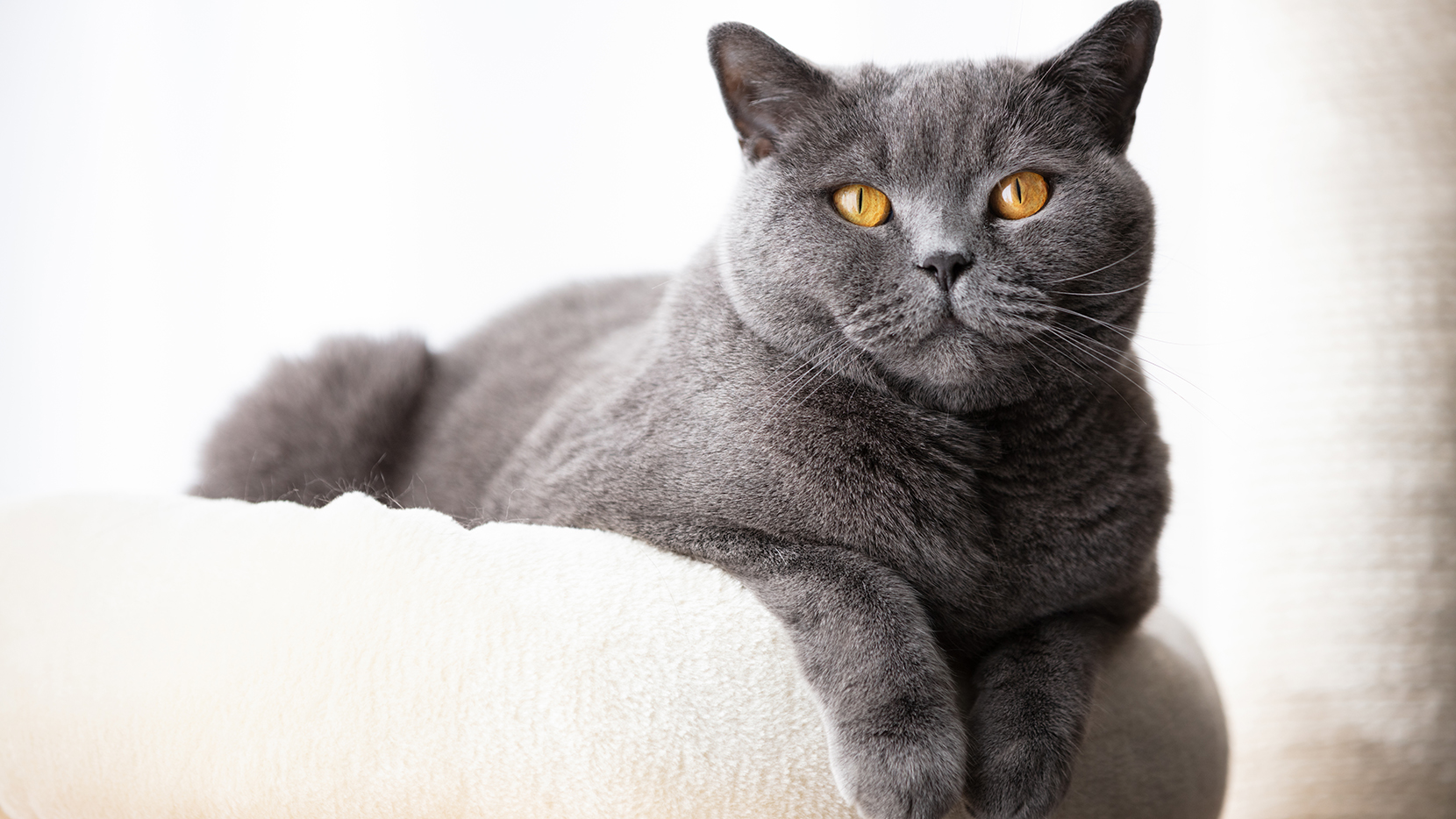
In 2022, the British Shorthair was one of eight cat breeds to feature on a series of Royal Mail stamps in England. While the puss that adorned the First Class stamp was pictured enjoying an adorable snooze, its ancestors may have had a more active role within the post office.
The organization has a long history of employing felines to keep mouse numbers under control in their sorting offices, and in 1868 the then secretary of the post office approved a small salary to cover their upkeep.
14. They're the sixth most popular cat breed in the US
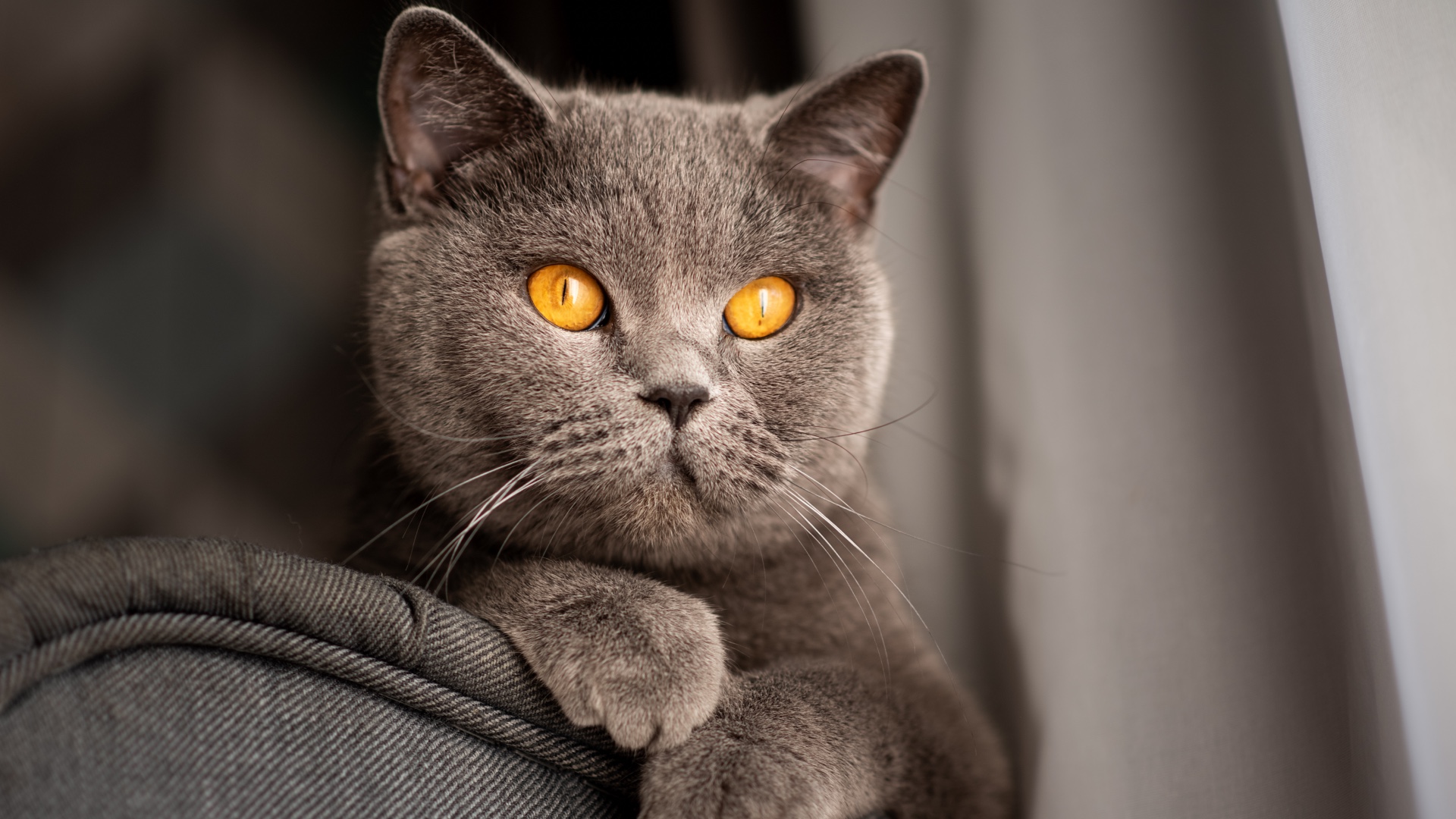
Each year, the Cat Fanciers' Association releases a list of the most popular cats in the US and for the past few years, the British Shorthair has ranked in the sought-after top 10, coming in at sixth place.
15. They're outstanding hunters
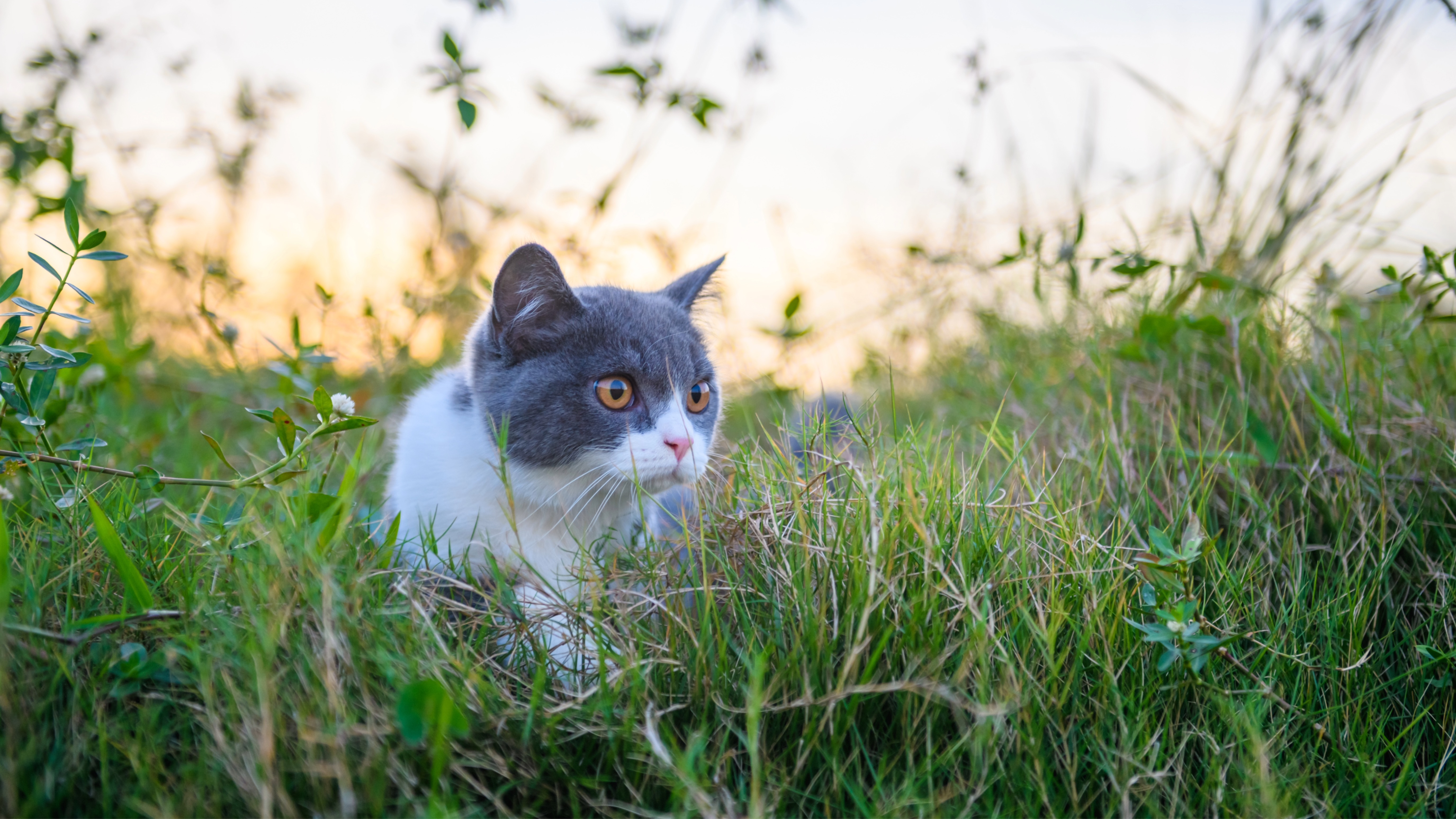
We know, their chunky build doesn't exactly scream stealth hunter, but believe it or not the British shorthair is fantastic at catching prey. They're one of many cat breeds that prefer being outdoors, so if you do grant them access to nature's backyard, just bear in mind that they may sometimes bring you back a present or two!
16. They have a calm demeanour
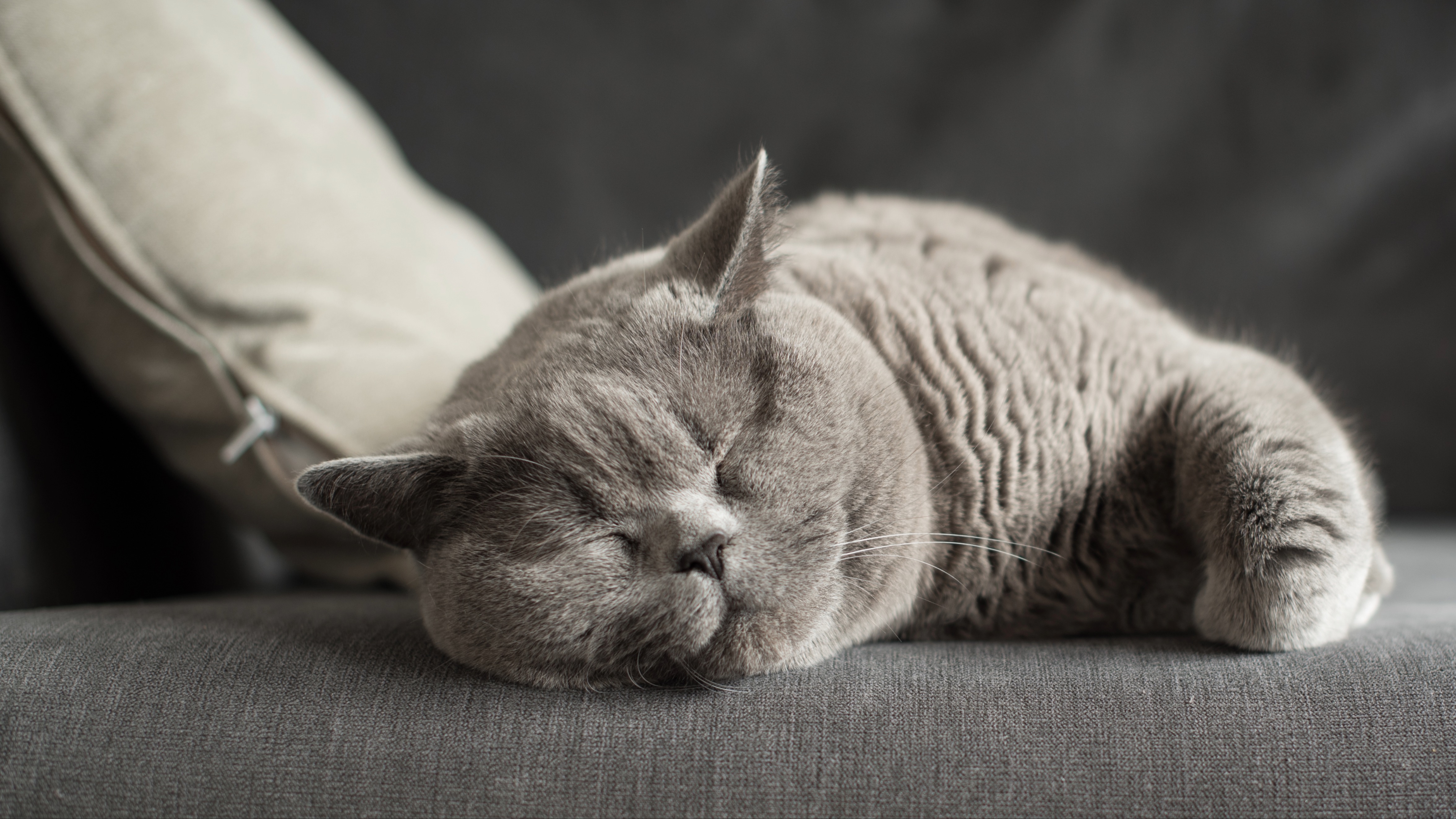
Looking for a low energy cat breed? The British Shorthair is well worth considering. Yes, they like to hunt if they have access to the outdoors, but overall they're a very mellow breed who loves nothing more than relaxing at home with their people.
17. Your personal space will always be respected by this breed
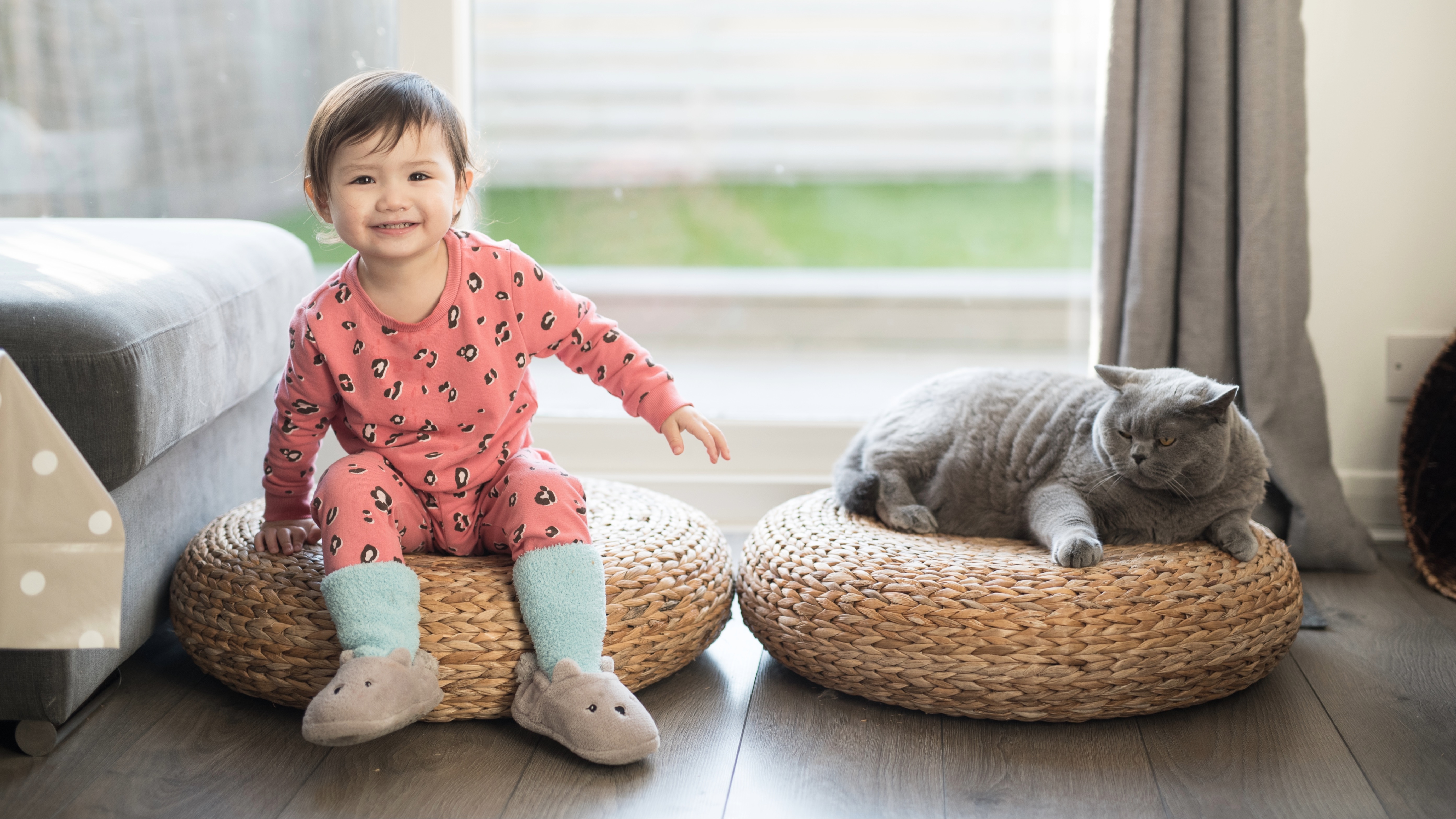
When it comes to the concept of personal space, you can rest easy knowing your British shorthair will always respect your boundaries. They're an ideal family cat as they very much want to around children and adults, but they prefer being alongside everyone rather than being picked up or cuddled. Sociable but independent enough to do their own thing when you're too busy to amuse them, they manage to be both affectionate yet undemanding.
18. They get on well with other pets

You won't need to worry about how to keep the peace in a multi-cat household if you have a British Shorthair because these chilled out little kitties get along well with everyone — including cat-friendly dogs.
19. British Shorthairs are ambiverts
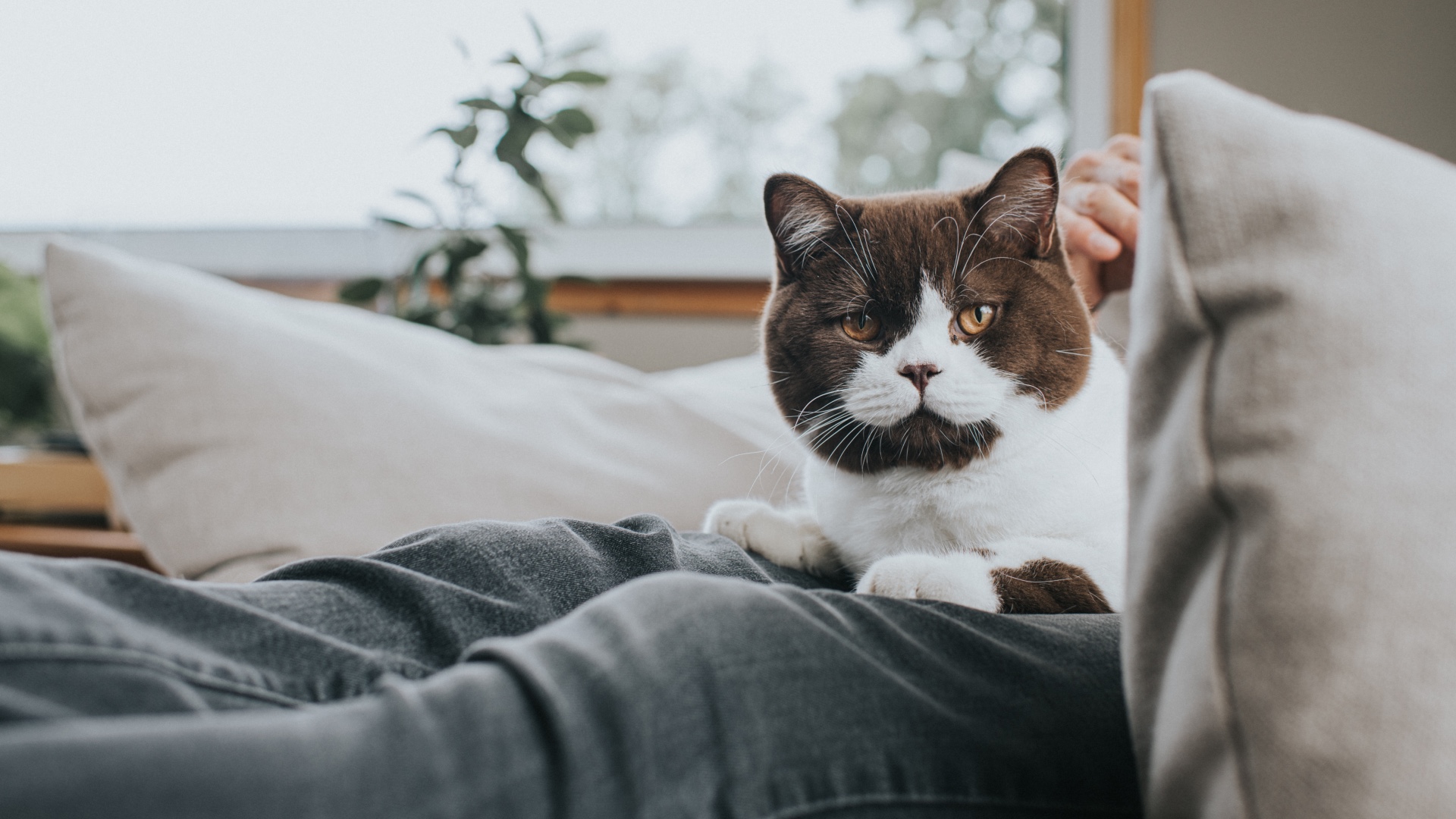
We talk a lot about the best cats for extroverts and the best cats for introverts, but the British shorthair manages to do something very few breeds can do — and that's be a great match for all personality traits.
The ambivert of the cat world, the British Shorthair has a personality that's a balance of introvert and extrovert features. They thrive on attention yet at the same time they value personal space, making them a great choice if you want a loyal and loving companion who's also happy in their own company.
20. They're very adaptable
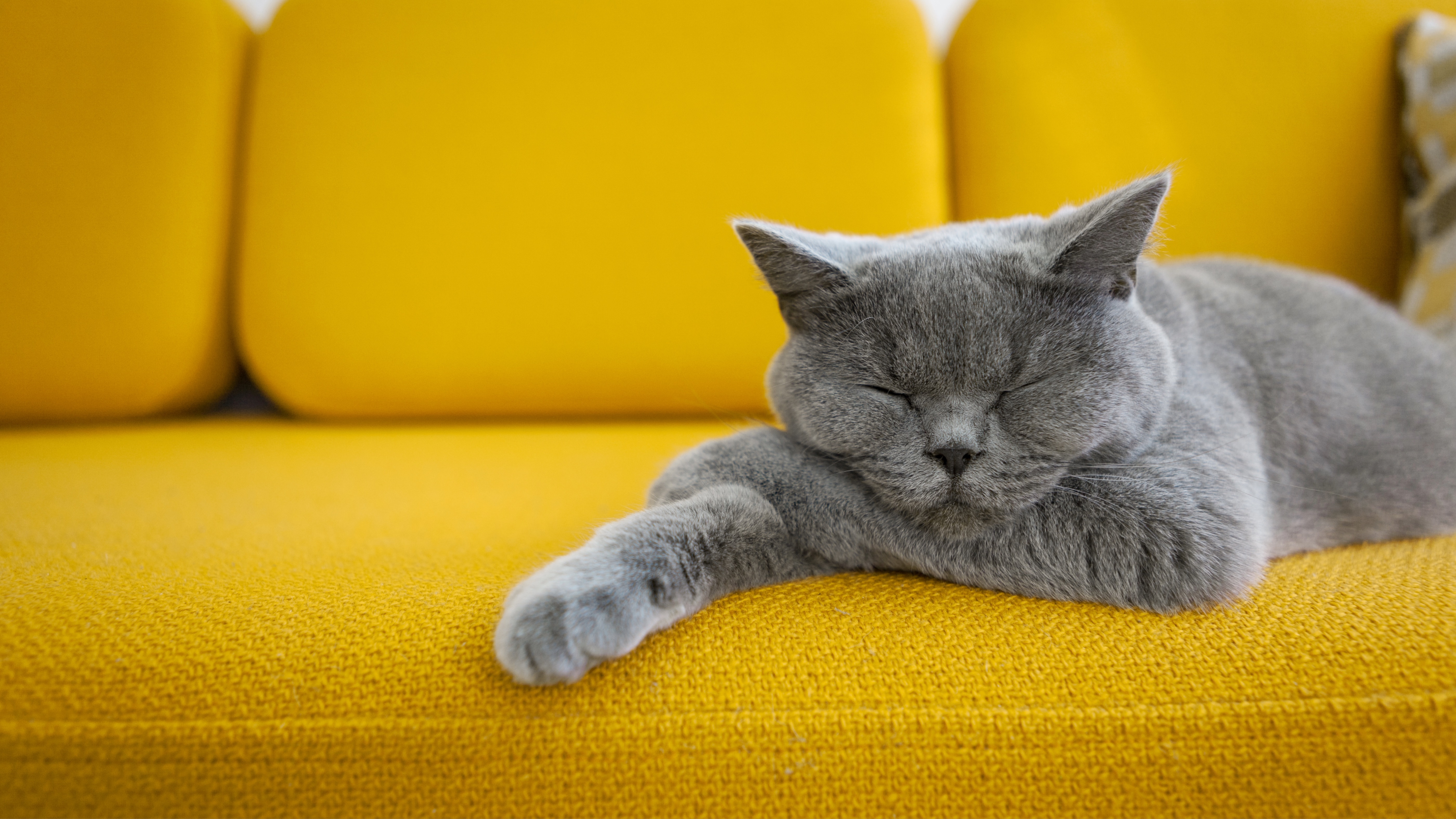
As you'd expect from a cat that's this laidback, the British Shorthair is a very adaptable breed who will thrive in almost any living situation and environment. Happy to live with singles, couples or bustling families, they do well in small apartments, big homes with ample gardens, quiet rural settings and vibrant cities.
21. They love to play
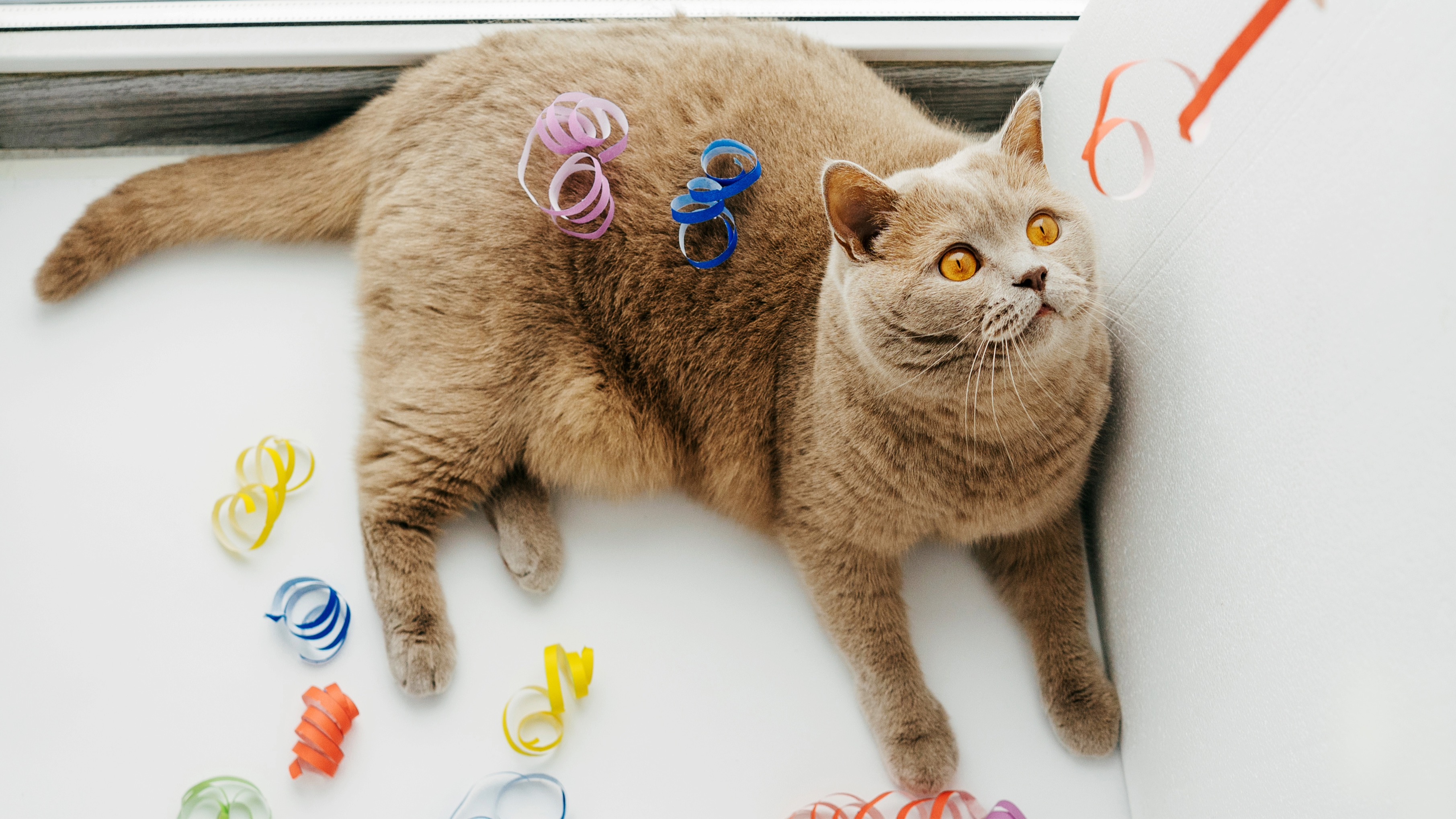
It's well worth stocking up on a few fun playthings if you have a British Shorthair in your home as they certainly enjoy having a good mouse toy to chase around when they're in need of burning off some energy.
But don't worry, unlike some breeds, they'll be more than happy to play independently with the best automated cat toys when you've got other things you need to be attending to.
22. They're a great choice for first-time cat owners
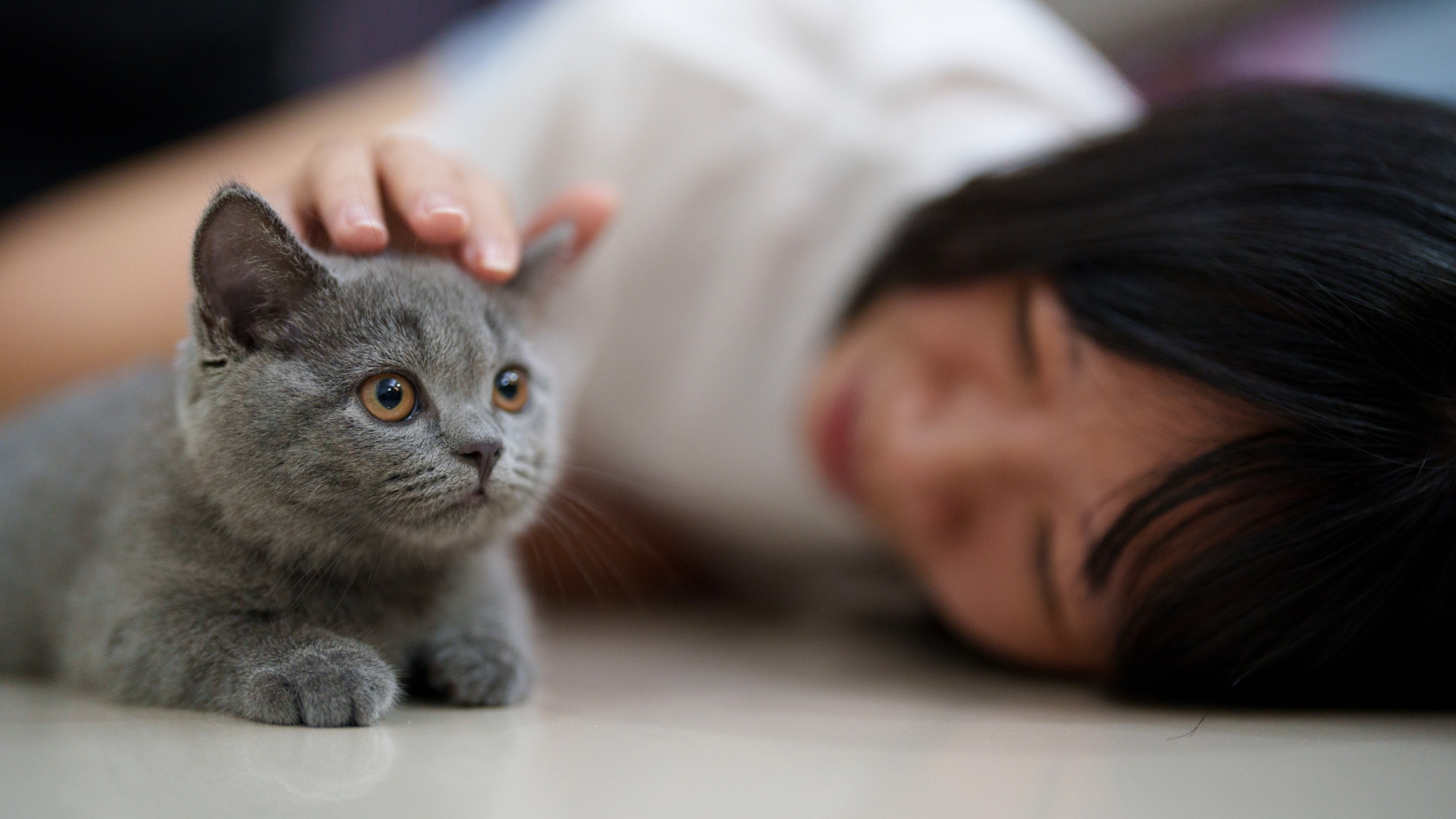
Because they're so laidback and low-maintenance, British Shorthair cats make wonderful companions for first-time cat owners who are looking for a breed that won't demand too much of them.
23. It's easy to get them confused
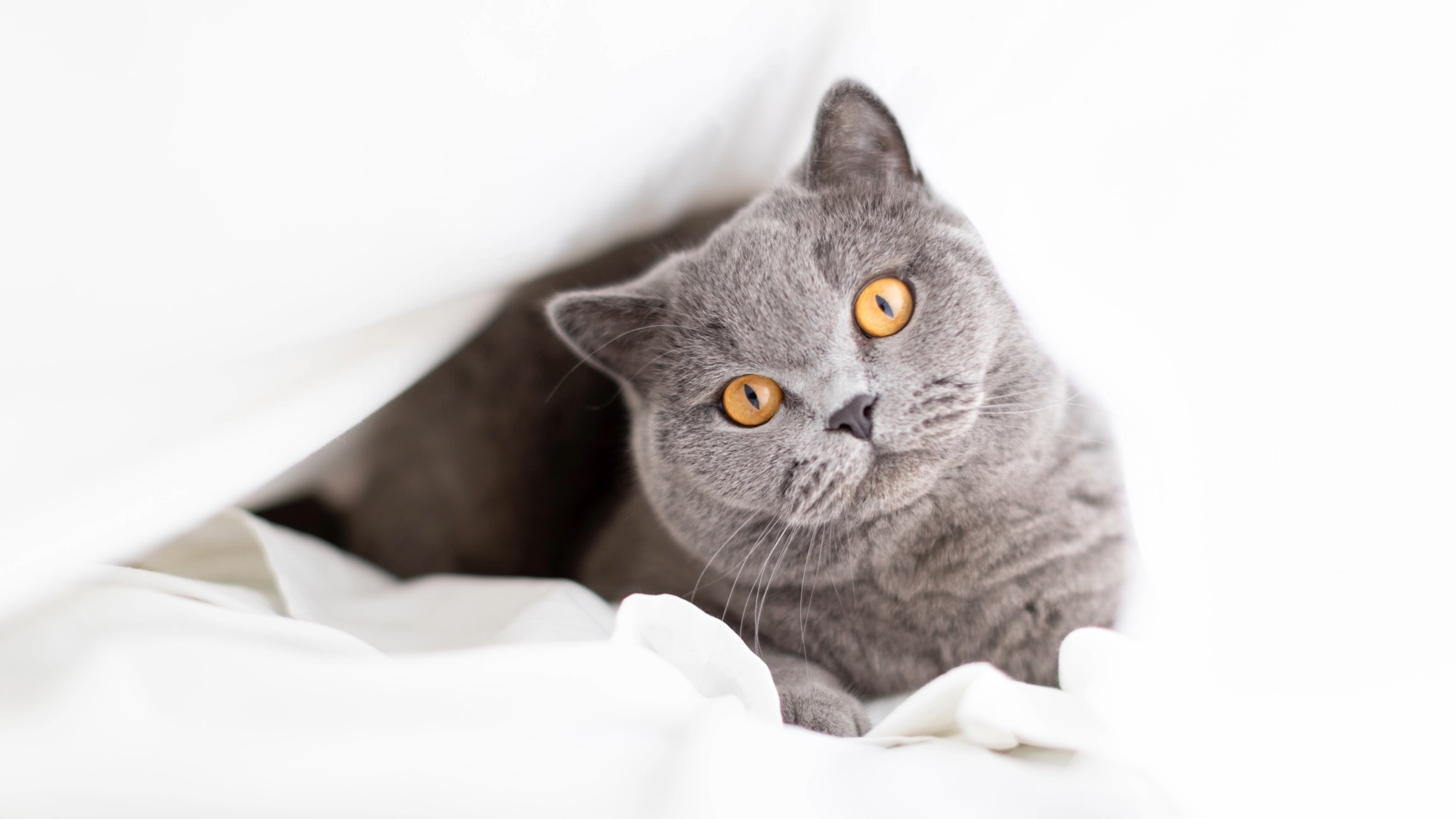
While the British Shorthair comes in many colors, it's the beautiful blue-grey version that is what the breed is most known for. Their trademark coloring means it's easy to get them mixed up with other breeds that look very similar, including the Russian Blue, Chartreux, softer-hued Burmese and Scottish Fold cats that have been born without the classic folded ears.
24. They look like little teddybears
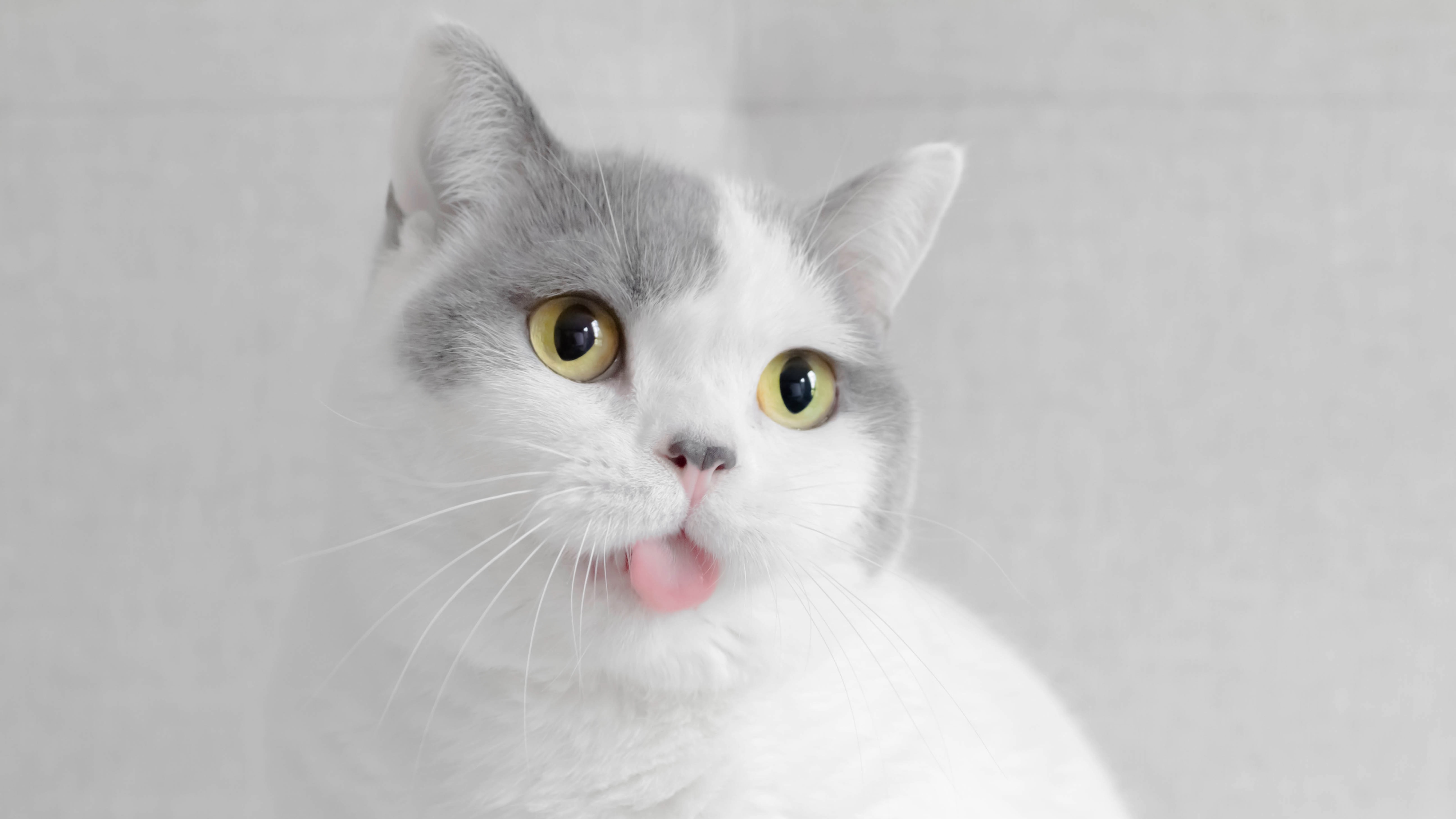
Thanks to their dense and plush coats and rotund appearance, the British Shorthair looks like an adorable teddybear brought to life. And it's not just their outward exterior that's teddybear-like, they're also known for being incredibly placid and gentle cats with a warm temperament that's a joy to have in the home.
25. They're fiercely loyal
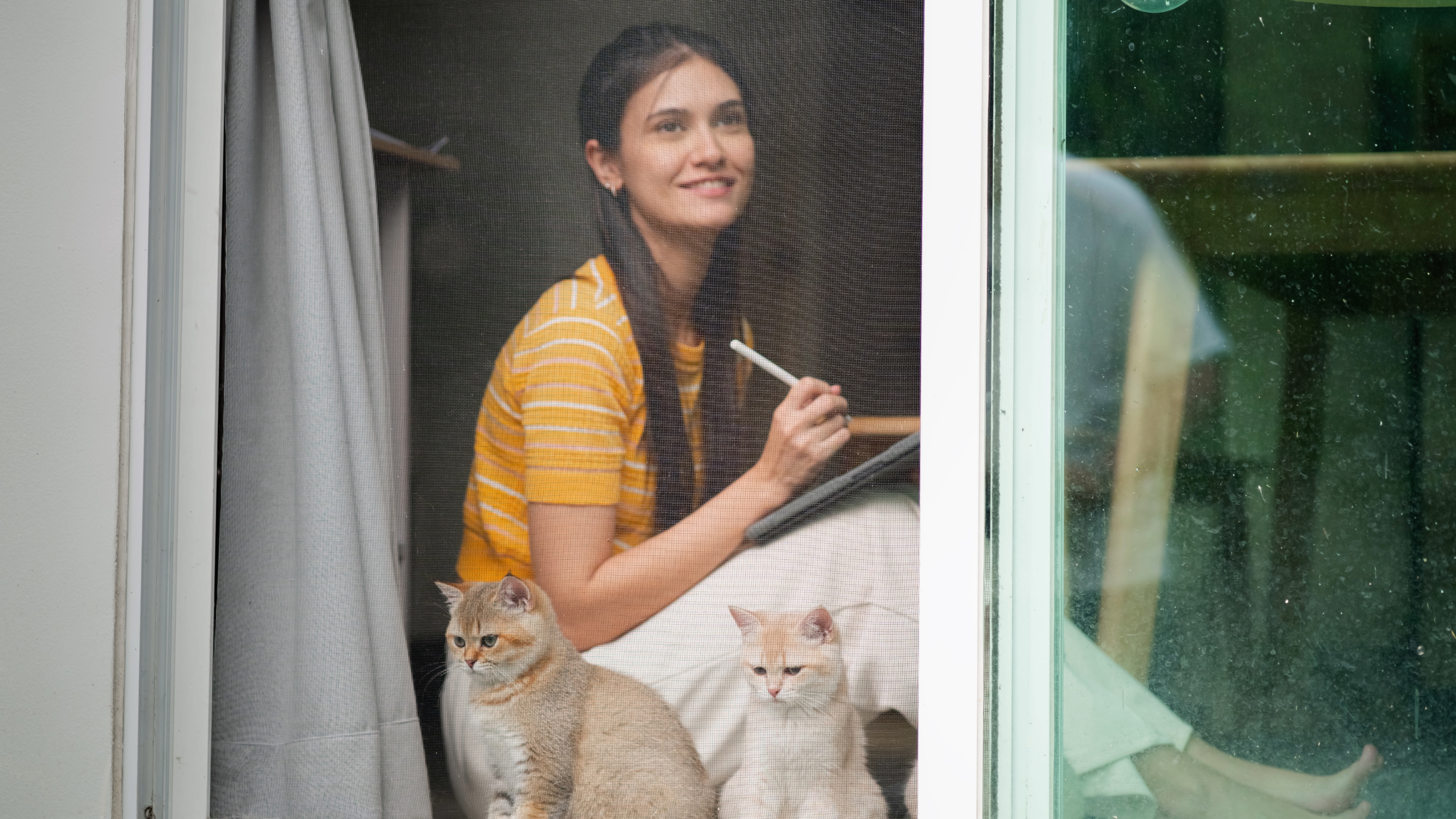
While they don't need hourly attention, don't let that fool you — the British Shorthair is still a very loyal and devoted cat, and rather than just choosing one person to form a strong bond with (as some breeds will do), they attach deeply to every family member.
26. They're very quiet
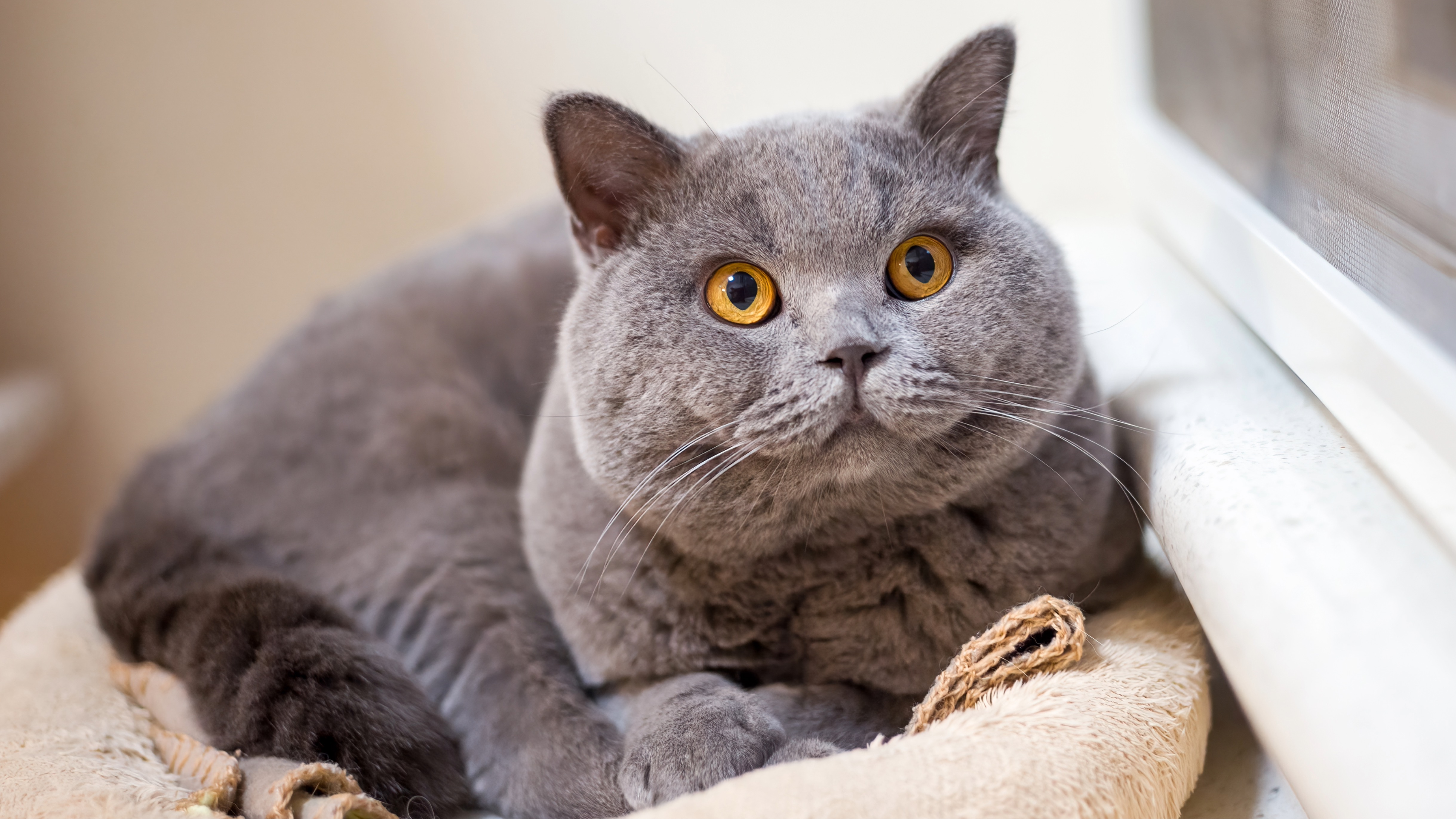
If you're looking for a quiet cat, the British Shorthair is a great choice. Very much the strong and silent type, this docile breed may chat with you from time to time but for the most part, they rarely use their low and soft voice preferring to communicate through their body language and facial expressions.
27. British shorthair cats are super smart
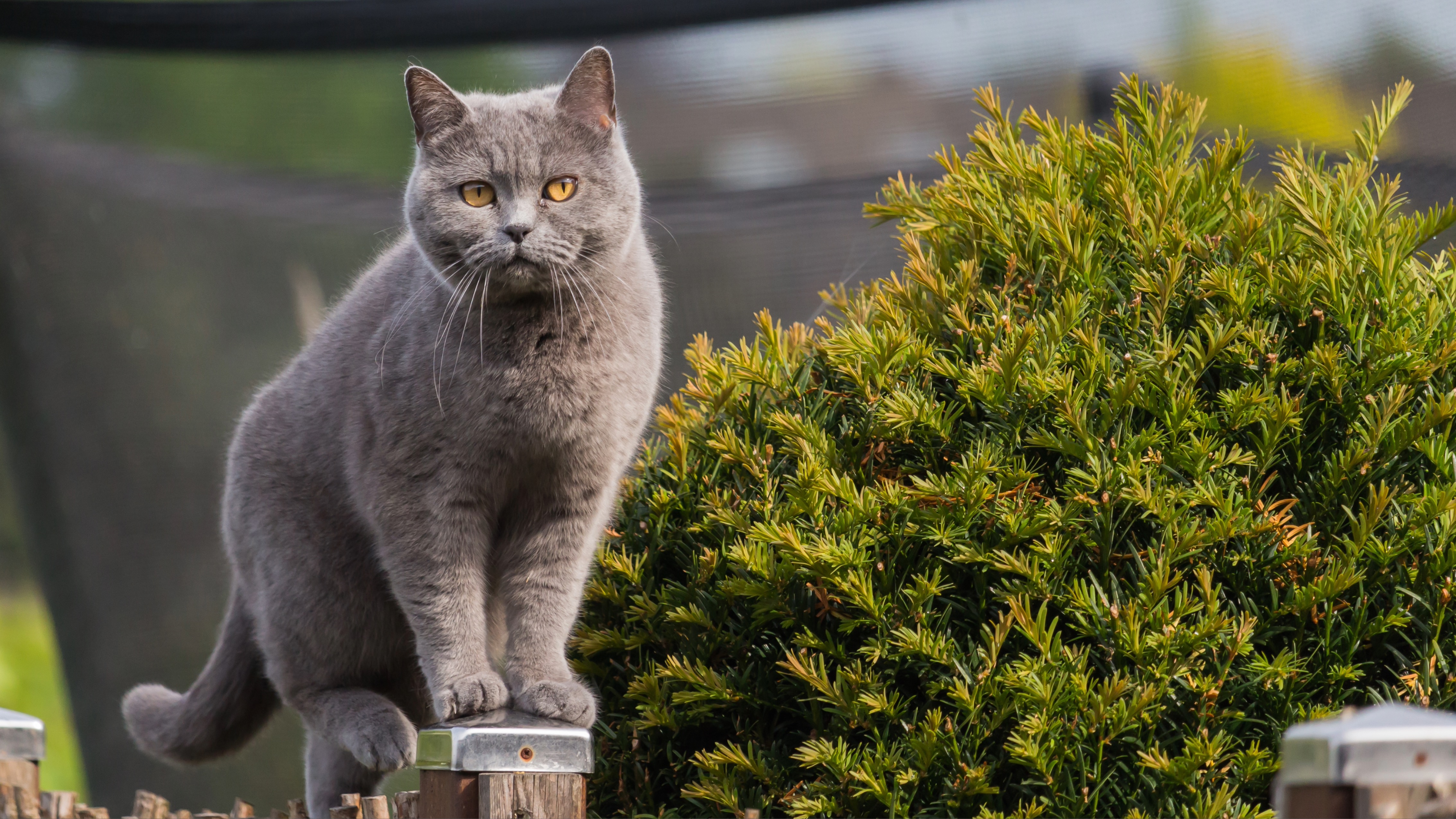
While they may have a humble and relaxed exterior, the British Shorthair is a highly intelligent breed that's easy to train and loves learning new tricks. When it comes to tips for training your cat, you'll find your British Shorthair picks things up very quickly as long as you're patient and consistent.
Tapping into their intelligence and teaching them something new isn't just a great way to bond, it will also give them that all important daily dose of mental and physical enrichment.
28. They require minimal supervision
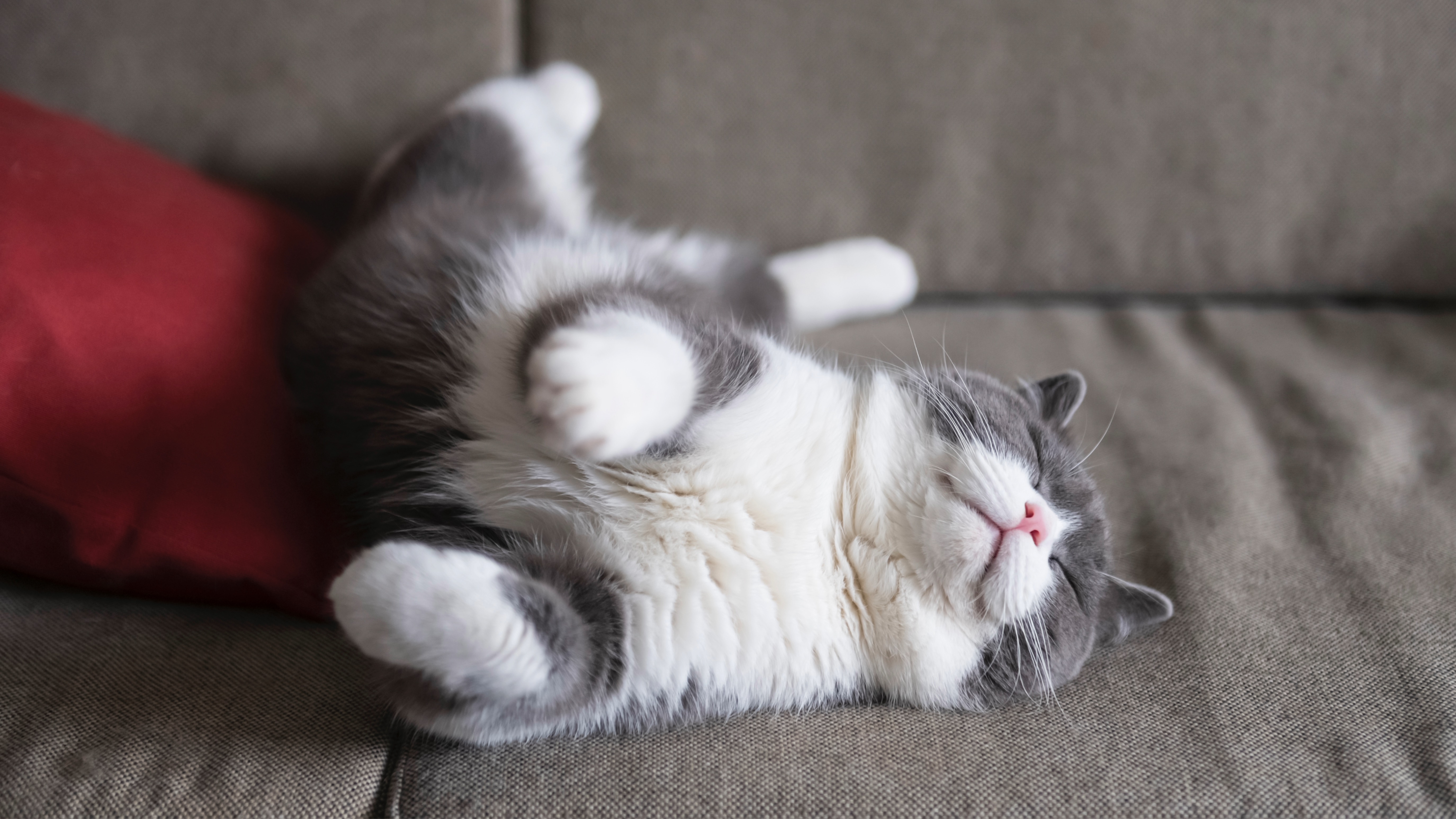
Unlike some cat breeds that love nothing more than getting into mischief the minute your back is turned (yes, we're looking at you Miss Burmese!), the British Shorthair is one of those cats that you can leave at home unsupervised and return to find everything exactly as you left it.
As long as you leave a few of the best interactive cat toys around the place for them to play with when they feel the need to be active, you'll find the British Shorthair to be a very well behaved little kitty indeed.
29. They sleep...a lot!
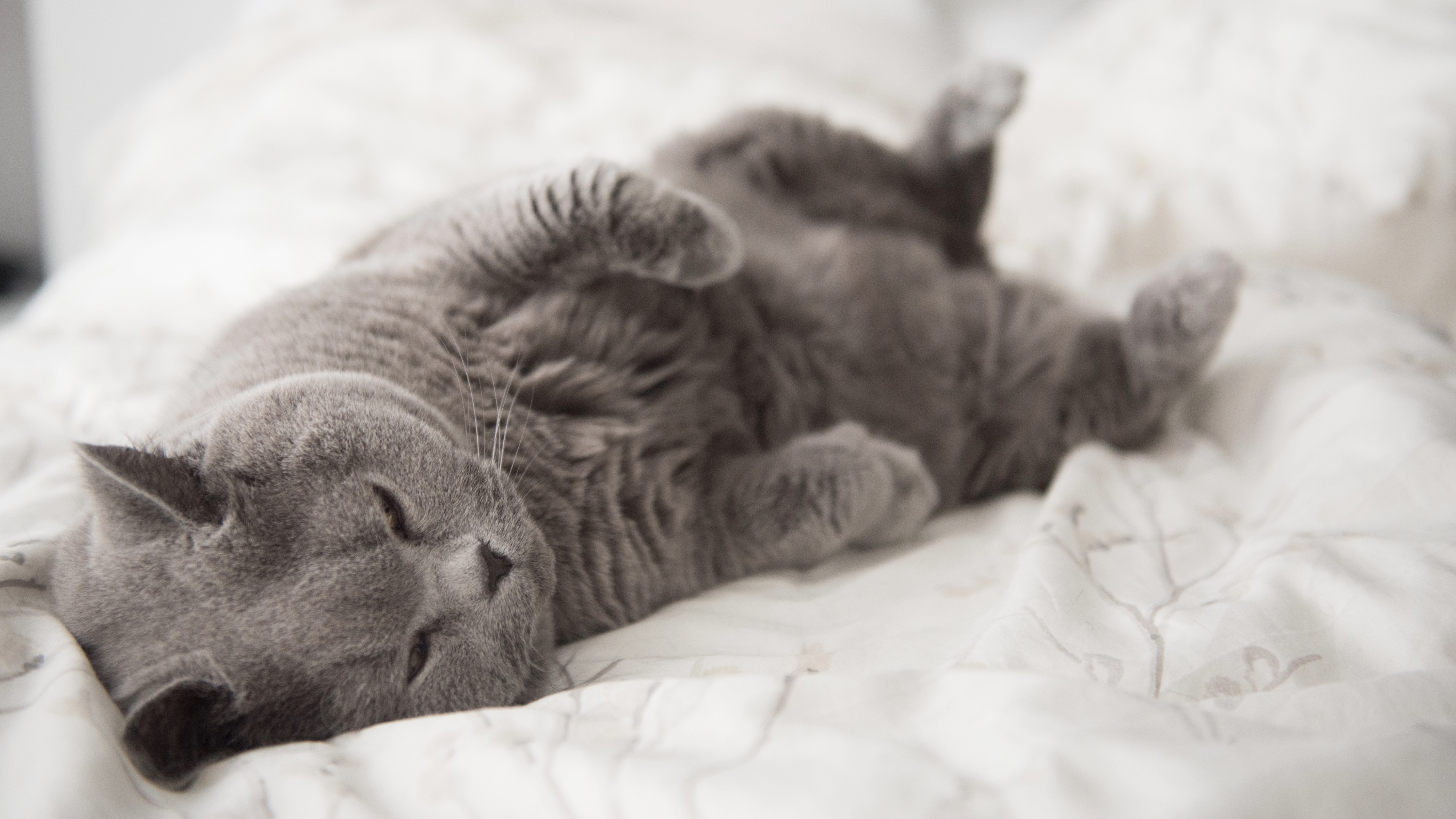
Ask a British Shorthair what their favorite hobby is and they'll be quick to curl up and show you. While most cats sleep between 10–16 hours a day, it's not uncommon for the British Shorthair to well exceed that and spend most of their lives with their eyes shut!
30. They're often bred with other cats

Because of their lovely natures and teddybear good looks, the British Shorthair is a popular choice for cross breeding. Some of the most common breeds they're paired with are the Persian, Maine Coon, Burmese, Scottish Fold, Russian Blue and the ragdoll.
31. They can be very lazy
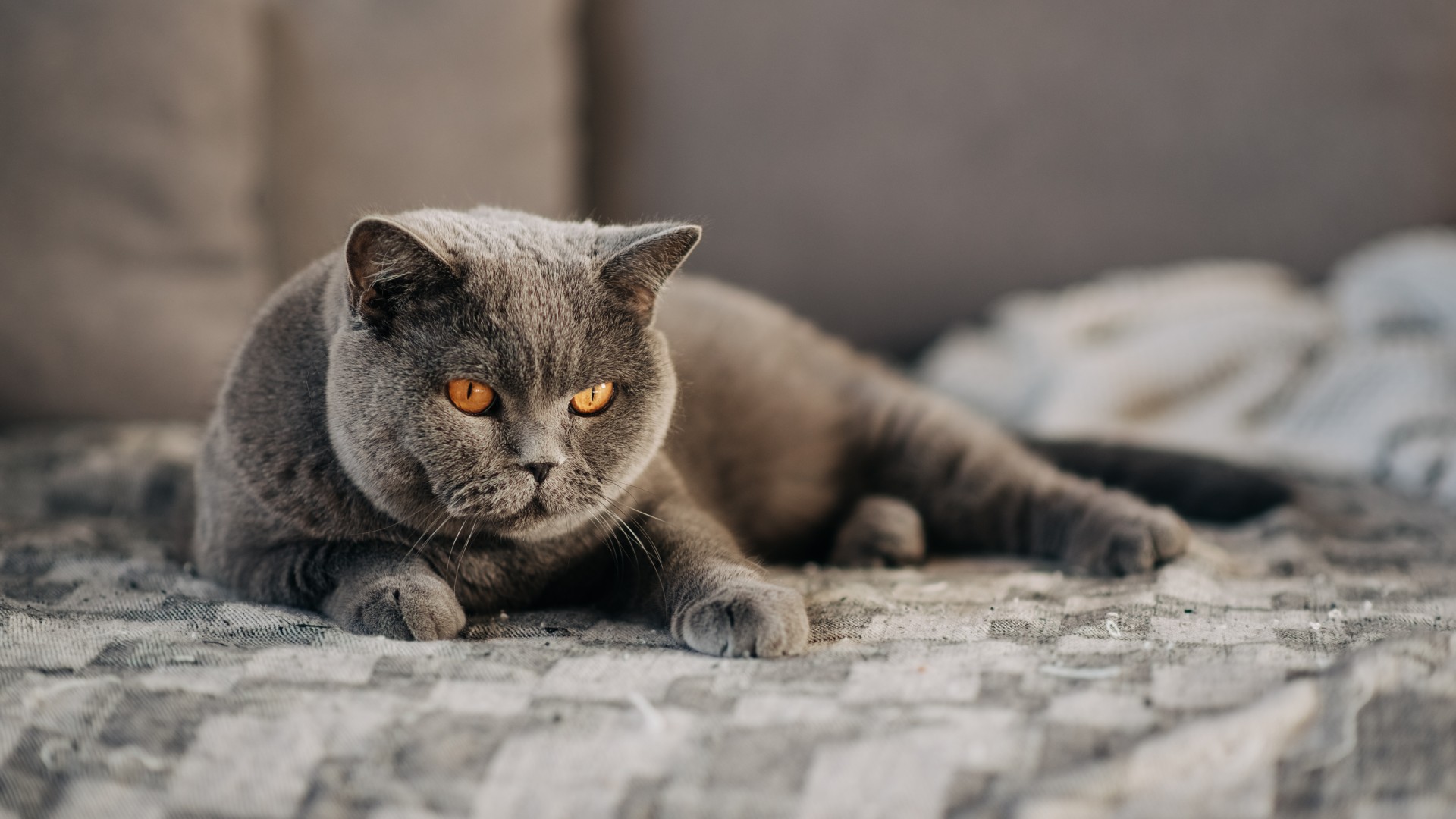
An inactive breed prone to laziness, the British Shorthair's idea of a good day is one spent snoozing in the sun. While British Shorthair kittens are highly active, they become very sedentary when they reach adulthood, however one thing that never changes is their love of a delicious meal!
Because of this, it's important that you encourage your kitty to exercise for 30 minutes a day to keep them physically healthy and help ward off obesity.
32. Males and females can behave differently
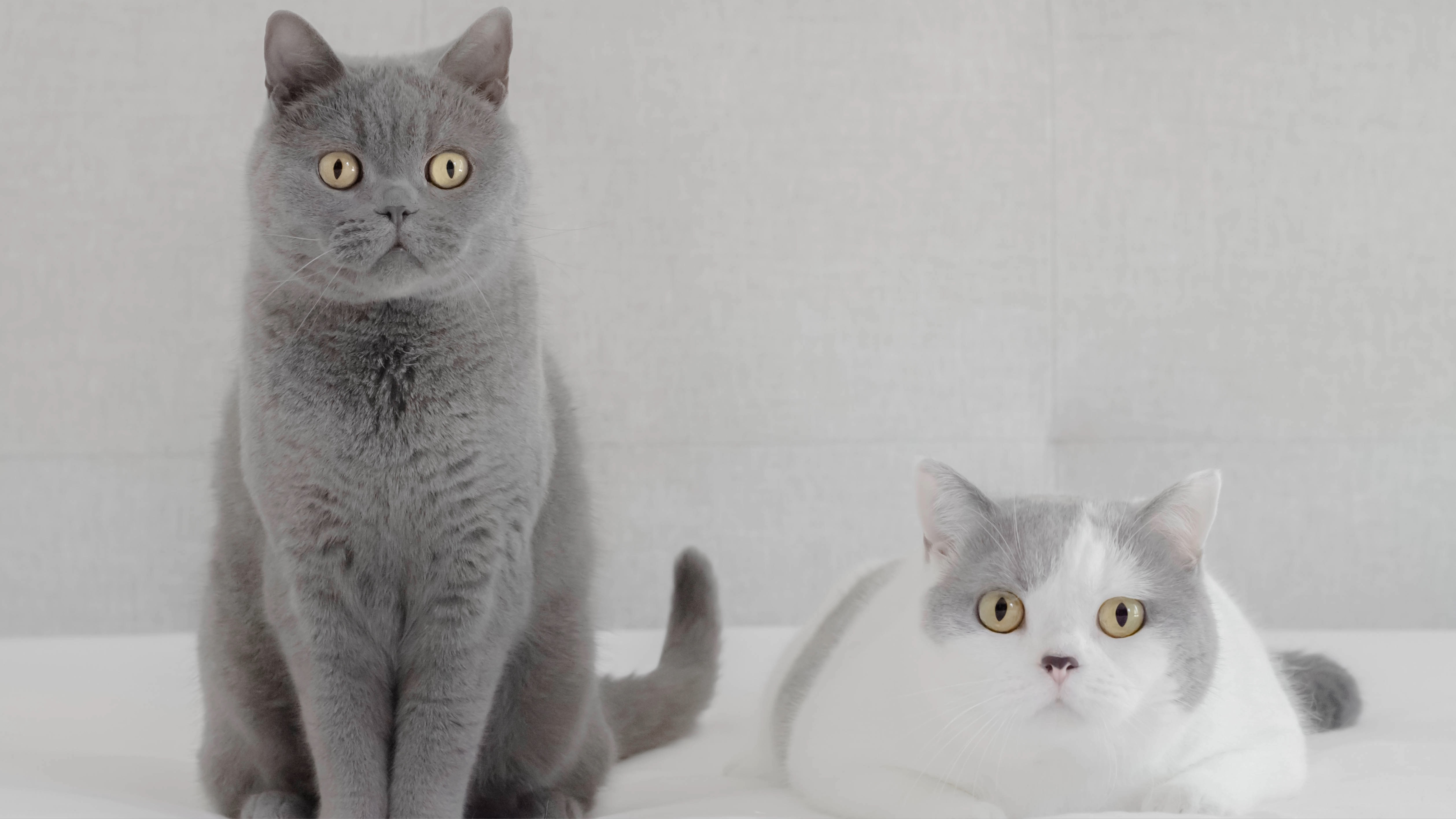
Like many other breeds, male and female British Shorthairs are prone to behaving differently. Males are typically goofier and more openly loving, while females are quieter and more thoughtful. Females also tend to be smaller and live a year or two longer than their male brothers and sisters.

Kathryn is a freelance writer who has been a member of the PetsRadar family since it launched in 2020. Highly experienced in her field, she's driven by a desire to provide pet parents with accurate, timely, and informative content that enables them to provide their fur friends with everything they need to thrive.
Kathryn works closely with vets and trainers to ensure all articles offer the most up-to-date information across a range of pet-related fields, from insights into health and behavior issues to tips on products and training.
When she’s not busy crafting the perfect sentence for her features, buying guides and news pieces, she can be found hanging out with her family (which includes one super sassy cat and a kitten), drinking copious amounts of Jasmine tea and reading all the books.
She has written for a range of publications, including Fit&Well, Top Ten Reviews, LiveScience, Goodto, and Product Hunt.
- Jessica DowneyFreelance Writer
